#bentham science publishers
Explore tagged Tumblr posts
Text
Price: [price_with_discount] (as of [price_update_date] - Details) [ad_1] The surge of multicore processors coming into the market and on users' desktops has made parallel computing the focus of attention once again. This time, however, it is led by the industry, which ensures that multicore computing is here to stay. Nevertheless, there is still so much research work to be done in multicore hardware-software designs before consumer applications can leverage the benefits of this new paradigm. This book is being put forward as a platform for immediate collection of state-of-the-art technologies in both hardware and software designs for multicore computing. With the burgeoning prevalence of multicore processors in embedded systems, real-time systems, multimedia systems, bioinformatics systems, network systems, to list a few, this book attempts to cover the design and verification issues related to different application domains as a singular source of reference to the state-of-the-art techniques in multicore processor design and software programming that covers multiple application domains. This book will be of immense help to system and software engineers, including both experts and non-experts in parallel computing. Publisher : Bentham Science Publishers; 1st edition (15 February 2018); Bentham Science Language : English Paperback : 106 pages ISBN-10 : 1608056856 ISBN-13 : 978-1608056859 Item Weight : 358 g Dimensions : 21.59 x 0.64 x 27.94 cm Country of Origin : India Packer : Epitome Publishing [ad_2]
0 notes
Text
A Review: Discovering 1,3,4-oxadiazole and Chalcone Nucleus for Cytotoxicity / EGFR Inhibitory Anticancer Activity.
Review paper of Mrs Shital Patil
Title: A Review: Discovering 1,3,4-oxadiazole and Chalcone Nucleus for Cytotoxicity / EGFR Inhibitory Anticancer Activity.
Authors: Patil Shital; Bhandari Shashikant
Journal Details: Current Computer-Aided Drug Design, 2019, 15, 252-258
DOI:https://doi.org/10.2174/1389557521666210902160644
Research Paper Link: https://www.ingentaconnect.com/content/ben/mrmc/2022/00000022/00000005/art00009
Publisher: Bentham Sciences
Description: Cancer is reported to be one of the most life-threatening diseases. Major limitations of currently used anticancer agents are drug resistance, very small therapeutic index, and severe, multiple side effects.The current scenario necessitates developing new anticancer agents, acting on novel targets for effectively controlling cancer. The epidermal growth factor receptor is one such target, which is being explored for 1,3,4-oxadiazole and chalcone nuclei. Findings of different researchers working on these scaffolds have been reviewed and analyzed, and the outcomes were summarized. This review focuses on Structure-Activity Relationship studies (SARs) and computational studies of various 1,3,4-oxadiazole and chalcone hybrids/ derivatives reported as cytotoxic/EGFR-TK inhibitory anticancer activity. 1,3,4-oxadiazole and chalcone hybrids/derivatives with varied substitutions are found to be effective pharmacophores in obtaining potent anticancer activity. Having done a thorough literature survey, we conclude that this review will surely provide firm and better insights to the researchers to design and develop potent hybrids/derivatives that inhibit EGFR.
0 notes
Text
The Big Bookshop …. a drama, 1964
The manager came downstairs to the Technical and Medical department to tell us that we would be having an important visitor sometime later in the morning. He’d had a phone call from the Midland Hotel announcing that a Saudi Prince, very involved in petrochemical science - (understandably) - would be visiting the shop. I listened to all this and being fairly pushy in those days, decided that I would do my best to speak to him.
It was a Thursday and not many customers. A girl came to the desk and asked if we had a copy of ‘Plant and Animal Biology’. I replied that the book was temporarily out of stock, but we would have it next Wednesday. She asked if I’d reserve a copy for her, and I replied that we would be happy to do that. Because it was a stock item, no deposit was required, but I asked for her name.
She then went back to the biology section - a small alcove set back between ‘Mathematics’ and ‘Logic’ - and I saw her stretching to reach a book on the top shelf.
I checked the time, I was due a break and was ready to go through to the back for a cigarette. A few minutes later I noticed she was still there and I drifted across with the pretext of smoothing a line of books. She turned and held out a copy of Bentham and Hooker ‘British Flora’. ‘Do you think there is a new edition coming? - she asked. I flipped through to the reverse of the title-page to check the dates of each revision. There was no predictable pattern and I told her it was impossible to know if a new edition was being prepared - publishers don’t reveal information that might reduce current sales. She knew what I was talking about; she understood.
But did she understand why we were so close together? I don’t know how we had trespassed into what could be called an impolite proximity - yet to sharply step back might have seemed even more inappropriate, perhaps insulting. So, not knowing what to do, or what to say, we just looked at each other for a long moment. We were the same height and the closeness of her face was like seeing myself in a mirror - the way you overlook your imperfections - the way you look neither up nor down, but instead stare back at the blur of your face, caught like a rabbit in headlights, on the brink of every extreme expression. She looked back at me as if in a subfusc gloaming.
And then the basement, normally so peaceful, even silent and sepulchral, exploded with the noise of a nightclub. Several Arabs, in billowing white robes, speaking very loudly all at the same time, came crashing like stallions down the stairs with our little plump manager trotting behind them.
0 notes
Text
Joseph Priestley
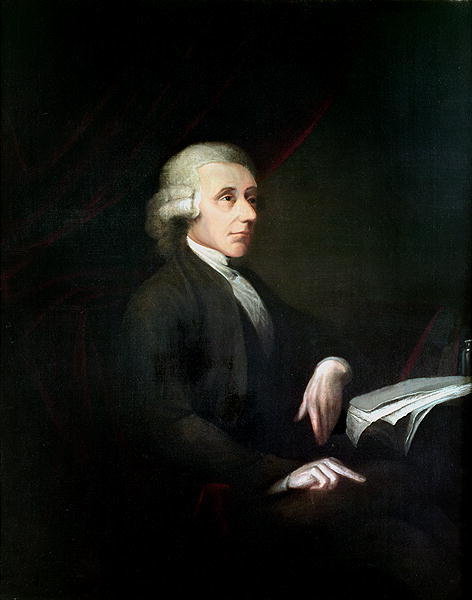
A portrait of Priestley commissioned by his publisher and close friend Joseph Johnson from Henry Fuseli (c. 1783)
an English chemist, natural philosopher, separatist theologian, grammarian, multi-subject educator, and liberal political theorist. He published over 150 works, and conducted experiments in electricity and other areas of science. He was a close friend of, and worked in close association with Benjamin Franklin involving electricity experiments
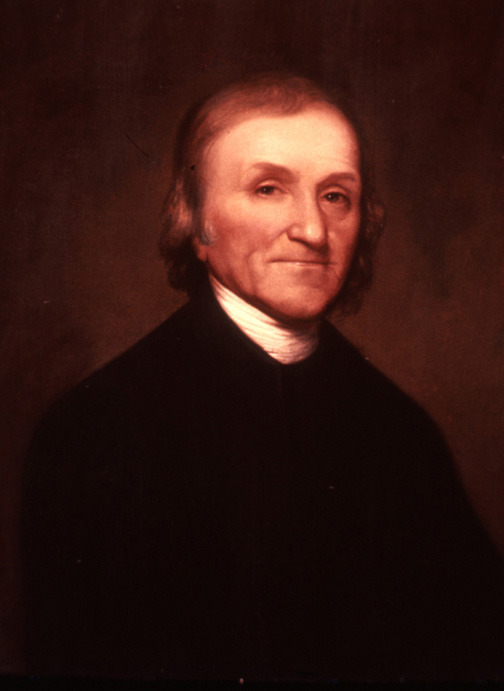
Priestley, painted late in life by Rembrandt Peale(c. 1800); Americans knew Priestley less as a man of science and more as a defender of the freedom of the colonies and of Dissenters.
Priestley is credited with his independent discovery of oxygen by the thermal decomposition of mercuric oxide, having isolated it in 1774. During his lifetime, Priestley's considerable scientific reputation rested on his invention of carbonated water, his writings on electricity, and his discovery of several "airs" (gases), the most famous being what Priestley dubbed "dephlogisticated air" (oxygen). Priestley's determination to defend phlogiston theory and to reject what would become the chemical revolution eventually left him isolated within the scientific community.
Priestley's science was integral to his theology, and he consistently tried to fuse Enlightenment rationalism with Christian theism. In his metaphysical texts, Priestley attempted to combine theism, materialism, and determinism, a project that has been called "audacious and original". He believed that a proper understanding of the natural world would promote human progress and eventually bring about the Christian millennium. Priestley, who strongly believed in the free and open exchange of ideas, advocated toleration and equal rights for religious Dissenters, which also led him to help found Unitarianism in England. The controversial nature of Priestley's publications, combined with his outspoken support of the American Revolution and later the French Revolution, aroused public and governmental contempt; eventually forcing him to flee in 1791, first to London and then to the United States, after a mob burned down his Birmingham home and church. He spent his last ten years in Northumberland County, Pennsylvania.
A scholar and teacher throughout his life, Priestley made significant contributions to pedagogy, including the publication of a seminal work on English grammar and books on history; he prepared some of the most influential early timelines. The educational writings were among Priestley's most popular works. Arguably his metaphysical works, however, had the most lasting influence, as now considered primary sources for utilitarianism by philosophers such as Jeremy Bentham, John Stuart Mill, and Herbert Spencer.

Priestley by Ellen Sharples
The intellectually stimulating atmosphere of Warrington, often called the "Athens of the North" (of England) during the 18th century, encouraged Priestley's growing interest in natural philosophy. He gave lectures on anatomy and performed experiments regarding temperature with another tutor at Warrington, his friend John Seddon. Despite Priestley's busy teaching schedule, he decided to write a history of electricity. Friends introduced him to the major experimenters in the field in Britain—John Canton, William Watson, Timothy Lane, and the visiting Benjamin Franklin who encouraged Priestley to perform the experiments he wanted to include in his history. Priestly also consulted with Franklin during the latter's kite experiments. In the process of replicating others' experiments, Priestley became intrigued by unanswered questions and was prompted to undertake experiments of his own design. (Impressed with his Charts and the manuscript of his history of electricity, Canton, Franklin, Watson, and Richard Price nominated Priestley for a fellowship in the Royal Society; he was accepted in 1766.)

Equipment used by Priestley in his experiments on gases
Priestley's years in Calne were the only ones in his life dominated by scientific investigations; they were also the most scientifically fruitful. His experiments were almost entirely confined to "airs", and out of this work emerged his most important scientific texts: the six volumes of Experiments and Observations on Different Kinds of Air (1774–86). These experiments helped repudiate the last vestiges of the theory of four elements, which Priestley attempted to replace with his own variation of phlogiston theory. According to that 18th-century theory, the combustion or oxidation of a substance corresponded to the release of a material substance, phlogiston.
Priestley's work on "airs" is not easily classified. As historian of science Simon Schaffer writes, it "has been seen as a branch of physics, or chemistry, or natural philosophy, or some highly idiosyncratic version of Priestley's own invention". Furthermore, the volumes were both a scientific and a political enterprise for Priestley, in which he argues that science could destroy "undue and usurped authority" and that government has "reason to tremble even at an air pump or an electrical machine".
Volume I of Experiments and Observations on Different Kinds of Air outlined several discoveries: "nitrous air" (nitric oxide, NO); "vapor of spirit of salt", later called "acid air" or "marine acid air" (anhydrous hydrochloric acid, HCl); "alkaline air" (ammonia, NH3); "diminished" or "dephlogisticated nitrous air" (nitrous oxide, N2O); and, most famously, "dephlogisticated air" (oxygen, O2) as well as experimental findings that showed plants revitalised enclosed volumes of air, a discovery that would eventually lead to the discovery of photosynthesis. Priestley also developed a "nitrous air test" to determine the "goodness of air". Using a pneumatic trough, he would mix nitrous air with a test sample, over water or mercury, and measure the decrease in volume—the principle of eudiometry. After a small history of the study of airs, he explained his own experiments in an open and sincere style. As an early biographer writes, "whatever he knows or thinks he tells: doubts, perplexities, blunders are set down with the most refreshing candour." Priestley also described his cheap and easy-to-assemble experimental apparatus; his colleagues therefore believed that they could easily reproduce his experiments. Faced with inconsistent experimental results, Priestley employed phlogiston theory. This led him to conclude that there were only three types of "air": "fixed", "alkaline", and "acid". Priestley dismissed the burgeoning chemistry of his day. Instead, he focused on gases and "changes in their sensible properties", as had natural philosophers before him. He isolated carbon monoxide (CO), but apparently did not realise that it was a separate "air".
In August 1774 he isolated an "air" that appeared to be completely new, but he did not have an opportunity to pursue the matter because he was about to tour Europe with Shelburne. While in Paris, Priestley replicated the experiment for others, including French chemist Antoine Lavoisier. After returning to Britain in January 1775, he continued his experiments and discovered "vitriolic acid air" (sulphur dioxide, SO2).
In March he wrote to several people regarding the new "air" that he had discovered in August. One of these letters was read aloud to the Royal Society, and a paper outlining the discovery, titled "An Account of further Discoveries in Air", was published in the Society's journal Philosophical Transactions. Priestley called the new substance "dephlogisticated air", which he made in the famous experiment by focusing the sun's rays on a sample of mercuric oxide. He first tested it on mice, who surprised him by surviving quite a while entrapped with the air, and then on himself, writing that it was "five or six times better than common air for the purpose of respiration, inflammation, and, I believe, every other use of common atmospherical air". He had discovered oxygen gas (O2).
Priestley assembled his oxygen paper and several others into a second volume of Experiments and Observations on Air, published in 1776. He did not emphasise his discovery of "dephlogisticated air" (leaving it to Part III of the volume) but instead argued in the preface how important such discoveries were to rational religion. His paper narrated the discovery chronologically, relating the long delays between experiments and his initial puzzlements; thus, it is difficult to determine when exactly Priestley "discovered" oxygen. Such dating is significant as both Lavoisier and Swedish pharmacist Carl Wilhelm Scheele have strong claims to the discovery of oxygen as well, Scheele having been the first to isolate the gas (although he published after Priestley) and Lavoisier having been the first to describe it as purified "air itself entire without alteration" (that is, the first to explain oxygen without phlogiston theory).
In his paper "Observations on Respiration and the Use of the Blood", Priestley was the first to suggest a connection between blood and air, although he did so using phlogiston theory. In typical Priestley fashion, he prefaced the paper with a history of the study of respiration. A year later, clearly influenced by Priestley, Lavoisier was also discussing respiration at the Académie des sciences. Lavoisier's work began the long train of discovery that produced papers on oxygen respiration and culminated in the overthrow of phlogiston theory and the establishment of modern chemistry.
Around 1779 Priestley and Shelburne – soon to be the 1st Marquess of Landsdowne – had a rupture, the precise reasons for which remain unclear. Shelburne blamed Priestley's health, while Priestley claimed Shelburne had no further use for him. Some contemporaries speculated that Priestley's outspokenness had hurt Shelburne's political career. Schofield argues that the most likely reason was Shelburne's recent marriage to Louisa Fitzpatrick—apparently, she did not like the Priestleys. Although Priestley considered moving to America, he eventually accepted BirminghamNew Meeting's offer to be their minister.
Both Priestley and Shelburne's families upheld their Unitarian faith for generations. In December 2013, it was reported that Sir Christopher Bullock– a direct descendant of Shelburne's brother, Thomas Fitzmaurice (MP) – had married his wife, Lady Bullock, née Barbara May Lupton, at London's Unitarian Essex Church in 1917. Barbara Lupton was the second cousin of Olive Middleton, née Lupton, the great-grandmother of Catherine, Duchess of Cambridge. In 1914, Olive and Noel Middleton had married at Leeds' Mill Hill Chapel, which Priestley, as its minister, had once guided towards Unitarianism.
Many of the friends that Priestley made in Birmingham were members of the Lunar Society, a group of manufacturers, inventors, and natural philosophers who assembled monthly to discuss their work. The core of the group included men such as the manufacturer Matthew Boulton, the chemist and geologist James Keir, the inventor and engineer James Watt, and the botanist, chemist, and geologist William Withering. Priestley was asked to join this unique society and contributed much to the work of its members. As a result of this stimulating intellectual environment, he published several important scientific papers, including "Experiments relating to Phlogiston, and the seeming Conversion of Water into Air" (1783). The first part attempts to refute Lavoisier's challenges to his work on oxygen; the second part describes how steam is "converted" into air. After several variations of the experiment, with different substances as fuel and several different collecting apparatuses (which produced different results), he concluded that air could travel through more substances than previously surmised, a conclusion "contrary to all the known principles of hydrostatics". This discovery, along with his earlier work on what would later be recognised as gaseous diffusion, would eventually lead John Dalton and Thomas Graham to formulate the kinetic theory of gases.
In 1777, Antoine Lavoisier had written Mémoire sur la combustion en général, the first of what proved to be a series of attacks on phlogiston theory; it was against these attacks that Priestley responded in 1783. While Priestley accepted parts of Lavoisier's theory, he was unprepared to assent to the major revolutions Lavoisier proposed: the overthrow of phlogiston, a chemistry based conceptually on elements and compounds, and a new chemical nomenclature. Priestley's original experiments on "dephlogisticated air" (oxygen), combustion, and water provided Lavoisier with the data he needed to construct much of his system; yet Priestley never accepted Lavoisier's new theories and continued to defend phlogiston theory for the rest of his life. Lavoisier's system was based largely on the quantitative concept that mass is neither created nor destroyed in chemical reactions (i.e., the conservation of mass). By contrast, Priestley preferred to observe qualitative changes in heat, color, and particularly volume. His experiments tested "airs" for "their solubility in water, their power of supporting or extinguishing flame, whether they were respirable, how they behaved with acid and alkaline air, and with nitric oxide and inflammable air, and lastly how they were affected by the electric spark."
By 1789, when Lavoisier published his Traité Élémentaire de Chimie and founded the Annales de Chimie, the new chemistry had come into its own. Priestley published several more scientific papers in Birmingham, the majority attempting to refute Lavoisier. Priestley and other Lunar Society members argued that the new French system was too expensive, too difficult to test, and unnecessarily complex. Priestley in particular rejected its "establishment" aura. In the end, Lavoisier's view prevailed: his new chemistry introduced many of the principles on which modern chemistry is founded.
Priestley's refusal to accept Lavoisier's "new chemistry"—such as the conservation of mass—and his determination to adhere to a less satisfactory theory has perplexed many scholars. Schofield explains it thus: "Priestley was never a chemist; in a modern, and even a Lavoisierian, sense, he was never a scientist. He was a natural philosopher, concerned with the economy of nature and obsessed with an idea of unity, in theology and in nature." Historian of science John McEvoy largely agrees, writing that Priestley's view of nature as coextensive with God and thus infinite, which encouraged him to focus on facts over hypotheses and theories, prompted him to reject Lavoisier's system. McEvoy argues that "Priestley's isolated and lonely opposition to the oxygen theory was a measure of his passionate concern for the principles of intellectual freedom, epistemic equality and critical inquiry." Priestley himself claimed in the last volume of Experiments and Observations that his most valuable works were his theological ones because they were "superior [in] dignity and importance".
2 notes
·
View notes
Text
(found this while looking for something else. I can only assume it’s related to my big ethics essay considering what’s at the bottom, but even my digital file keeping is akin to post-it notes and scatted pieces of paper.)
"If the Empire is to have my life, why can't I have a say in how long they should have it? If I can decide what to do within it, why not outside it?" Rochester looked uneasily to Simone. She stared back at him, placid as a river sheathed in ice.
"If you get that," she said after a while. "Why can't I get that?"
"You should. I should. We paid our dues." Maybe everyone has.
For (contrived purpose) Wilhelm, Rochester and Qiu find themselves on a planet recently instituted with new leadership Imperial. In disguise they are not Imperial citizens and are treated harshly by the enforcement officers. Rochester area this as an injustice to the empire as he knows it: a corruption of the ideal of progress under Imperial leadership, the use of sith ideology outside of context. Wilhelm, being off a lower class, sees it as rote. There is a brief discussion on the ship about relationships: the expectation of Rochester to have had the marriage with Stion'n (or some other appropriate woman) before the intervention of Sith, Qiu remarks she gave eggs to the eugenics programme and Willem points out he "failed" an exam on 97/100 and did not get invited to the programme despite surpassing colleagues in areas untested. As they prepare to leave Rochester involves himself in a riot against the planetary governor, believing that they will be replaced for their failings. It's some weeks later, on another planet, he learns of the retribution meted out against the populace, and sees the extent of the propaganda used.
"If there's no reward or punishment for unjust acts and likewise for just, or that for this moment we not consider them and think only of the act themselves, why act justly? Or unjustly?"
"Nothing?"
"Nothing at all."
Rochester shrugged. "I can't think of anything."
"So nothing in the act itself is preventing you?"
"You said no external factors. Aren't my own feelings external factors to the act?"
"So the justness or unjustness of an act is not in the act itself?"
"I don't know. Is a human life different to a leaf, if we don't consider consequences?"
"A 'human' life?"
"Sorry, a person's."
"And we consider consequences?"
"Aren't those the external factors? I wouldn't be rewarded for saving a murderer from drowning but rather punished for it?"
"Is a person's life not inherently worth something?"
"Beyond their being a murderer?"
"I think we might be getting off track."
"Well, if you remove consequences of the action, doesn't the action then become amoral?"
"How so?"
"There's no question of justice when I wave my hand, but if I strike someone with it, then the question arises. But if there's no consequence to myself or the person I hit, where's the need to question its justice or morality?"
"So, you think the justness of an action might stem from it taking place in a system of consequences and reactions?"
"I suppose so." A little uneasy. Unsure of his answers and thoughts for the road ahead was unpaved and long, and shrouded in ignorance.
It is, in the Imperial culture, just that the Sith might rule as they do for they are favoured, might is within their nature and the weakness self correcting in their system.
It is to be above one's station if, being not force sensitive, one attempts to exercise that rule of might.
The empire as a tool of sith has the might to be right, but its citizens within must act appropriately. As all citizens are equal, they are to act equally to each other (but they aren't equal, class and breeding are paramount, where it is merit one might advance but first merit is birth). To act as a sith is to put oneself on their footing, and thereby in their court. So that all citizens are equally protected from the Sith court, no citizen must enter it.
Under the sphere of philosophy comes the ministry of education which, in its entirety, covers education from childhood to adulthood, propaganda and censorship. Censorship in part extends the role of sith who search for heretics by ensuring that texts published to have anti-Imperial sentiment. This might include, but is not limited to, characters engaging in un-virtuous or sinful acts who do not get their comeuppance (see Hayes code) or who are otherwise depicted sympathetically, expect where they are sith and act in a sith manner (that is virtuous to a sith but not a citizen). Less so on core worlds but common on those conquered is the existence of illegal printing presses (sometimes actually paper and ink) that create anti-Imperial leaflets alongside unapproved works or uncensored versions of sort after works. Even though romance is a common genre in the empire and many books are sold cross borders, the Cabinet censors parts or rewrites whole chapters to better suit "Imperial tastes".
Virtues of the Empire:
Loyalty
Of the citizen:
Honesty
Integrity
"Strength of will"/perseverance
Charity to children
Courage
Pride (in the empire and ones achievements)
Wisdom
Temperance of action and feeling (self discipline)
Orderliness *at once keeping stuff in order, but also understanding one's place in the empire
Will to excellence *the best me and the best I can do makes the empire better as a whole or the the best I can do for the empire is the best me
cleanliness *don't smell
Unity *not necessarily friendliness, but not rocking the boat as it were
"In all ones actions and duties to uphold the standards of the Empire"
Timely - to know when best to be serious and to be jovial. Also, be on fucking time
Respectfulness
Of the Sith:
Cunning
Wisdom
To live one's truth (the existential ideal)
Strength
Will to power
Justice (upholding Imperial laws and ideals)
Magnificence
The Sith might also be expected to perform the virtues of the citizens listed above, particularly those of being timely, orderly and clean. When in the presence of Sith of higher standing, or of citizens of high standing particularly those of the military or intelligence, then such actions will also be expected.
Temperance (self discipline) - the Sith rule and control their emotions. Though one might become powerful through unbridled rage, one might lose oneself to it and lose one's mental faculties including (ironically) the _will_ to power, making one un-Sith-like.
As ever, these virtues are not to be practiced in excess nor be shied from. Life in the Empire is a balancing act.
The Empire contains three formal classes, four if slaves are considered.
There are the Citizens, which one could class all as for they all live within the Empire, but Citizens are those who are born to Imperial families, typically within core Imperial worlds. They have the force of longevity behind them, their presence and purpose within the Empire is inherent. They have the tried and true Imperial education, in mathematics, warfare, literature and the sciences. They all hold in some form a military position. A teacher can be called upon to fire a gun, as a baker can be expected to fix a tank. Full time military service is performed by all citizens for four years, and after that either continue within the military system or return to perform other vital roles within the Empire.
De facto citizens or the Treatise'd. Those living in planets the Empire has conquered, by war or through the Treaty of Coruscant. Formal expectations of them are the same, however Citizens oft treat them, not necessarily with contempt but not with high expectations. Citizens see their lack of Imperial education (something being rectified but sorely lacking in the adult generations) as a fault that prevents them from performing the best they can for the Empire (see the virtues). This disregard for their own experiences, talents and cultures does, to put it mildly, chafe the De Facto citizens.
The Sith. They can learn philosophy. It's not the most popular subject, but many who do involve themselves in the Ministry of Education, and by extension the Bureau of Propaganda and the censorship cabinet. Philosophy is a poor subject for citizens, as it gives one the ability to ask questions and not necessarily accept the answers given.
Rule consequentialism (not utility as this implies Bentham et al, but "to the betterment of the Empire" that is, does this action benefit the Empire, how so, to what extent) and virtue, as outlined. As the legal system must exist for the society to function there are of course pre-existing rules.
For an example from the game, murder. It is implicitly stated that murder is _not_ allowed (the quest of the acolyte sith ganking civs) through much of the society, up to the Dark Council, where it seems to be a matter of not getting caught (a virtue of the Sith is therefore cunning; Darth Thanaton's adherence to tradition in the face of the easier route is seen as an eccentricity ultimately turned weakness).
Education in the Sith language starts at an early age. For those who are sith born to sith, it is a natural process of learning as with any mother tongue. For those who have force abilities at a young age, or are believed to be likely of showing them, this is a more formal education one might expect on a school setting, starting also at a young age. Obviously this approach favours those who have the opportunity to learn and whose abilities can be either reasonably expected it recognised. Those who come into their abilities late, or come from de facto worlds, or even are slaves, may never receive this education. The ability to speak the sith language is a merit. This is how merits play out in the Empire, and how their meritocracy works. Birth is a merit, opportunity and privilege also.
2 notes
·
View notes
Text
Review: Discipline & Punish by Michel Foucault

Foucault's main focus is to illustrate how, despite our self-congratulatory complacence at moving away from the barbaric model of medieval punishment, we have in fact transferred the imperatives of controlling human beings – be they deviants or conformists – from their bodies to their souls.
Published in 1975, Michel Foucault's Discipline and Punish has gained widespread recognition as one of his most intriguing and subversive works – and, conversely, his most accessible. A majority of the Foucauldian oeuvre is densely-packed with semiotic theories of language that are difficult – if not impossible – to immediately decode. However, this very richness of text attests to the depth of Foucault's scholarship, which reconstructs a picture of modern society not simply from conventionally-academic viewpoints but from an astonishing wealth of sources, including history, science, philosophy and art. Foucault is determined not to be beholden to any particular school of thought, but instead to forge unique standards of interpretation – or, failing that, to at least expose ubiquitous social and ethical narratives as the arbitrary fabrications they are.
This focus on deconstructing social mechanisms, indeed, is a crucial frame for Discipline and Punish as a whole. Utilizing a genealogical historical lens, Foucault traces the slow and oppressive transformation – as opposed to 'evolution', a phrase often touted by proponents of liberal reform – of the Western penal system. Foucault's main focus is to illustrate how, despite our self-congratulatory complacence at moving away from the barbaric model of medieval punishment, in favor of gentler and more civilized modes of discipline, we have in fact transferred the imperatives of controlling human beings – be they deviants or conformists – from their bodies to their souls. As Foucault states, "Physical pain, the pain of the body itself, is no longer the constituent element of the penalty. From being an art of unbearable sensations punishment has become an economy of suspended rights," thus intimating that the organs of institutional control have not grown less harsh or restrictive, but simply less overt (11). Indeed, by relying on a framework of internal rather than external constraints, it has become possible to erode the very modicum of individuality, reducing human beings to what Foucault describes as "docile" bodies complicit in their own exploitation.
Foucault goes on to remark that, "…the 'Enlightenment', which discovered the liberties, also invented the disciplines" (222). Certainly, a central component of Foucault's work is how it calls into question the universal binary model of crime and punishment, and how this binarization contributes to social regulation. By dividing individuals into categories of deviants and conformists, it is possible to contribute to a system of ritualistic exclusion, which in turn sanctions disciplinary structures designed to surveil and control both groups – one in the interest of their safety, the other out of the necessity to contain and subdue them, thereby expanding the net of power. More disquietingly, the net's very ubiquity serves to render it invisible, and, eventually, an acceptable and even necessary component of society.
Foucault further develops this concept by examining the concentrated power-structures of non-penal institutions, which nonetheless share core similarities with the penal model. For instance, schools, hospitals, workplaces, courts, are all part of an interlocking disciplinary web, within which hierarchical judgement, control, and examination are normalized as part of the daily process. As he succinctly puts it: "We are entering the age of the infinite examination and of compulsory objectification" (189). Foucault lays the blame for this phenomenon on a capitalist system whose economic and political trajectory has led society to a place of commodification and classification, where the complexities of dynamic individuals are pared down into reductionist categories of 'acceptable' or 'unacceptable.' According to Foucault, surveillance and regimentation as a means of producing compliant individuals is the crux of modern economies, to the point where society has transformed into an industrial panopticon – a nightmarish perversion of Jeremy Bentham's original ideal. As such, whether individuals live as offenders within a prison, or as free citizens, is irrelevant. The scant difference in both their constraints is measured by mere degrees.
On the whole, Foucault's works have been influenced by a number of prominent theorists, from Deleuze to Nietzsche. His ideas of coercion and control through ubiquitous surveillance, in turn, have inspired countless compelling interpretations on how disciplinary organs can permeate society in its entirety, to the point where the disciplinary gaze of outside institutions becomes a harsh internal scrutiny to which we subject both ourselves and others, while simultaneously shaping our behaviors to the conventional standard. These aspects of Foucault's work, while not in themselves new, are nonetheless bitingly insightful and timelessly pertinent, having outlasted postmodernism to be applied at multiple levels to the era in which we exist today.
Works Cited
Foucault, Michel. Discipline and Punish: The Birth of the Prison. Random House LLC, 1977. Print.
2 notes
·
View notes
Text
What's the Right Thing to Do - Lecture 6 The Supreme Principle of Morality

科学是整理过的知识,而智慧则是整理过的人生。 ---康德 Science is organized knowledge. Wisdom is organized life. ——Immanuel Kant
小心你的动机 Mind Your Motive 现在,我们 Now we turn 转到这门课最难懂的哲学家 Now we turn to the hardest philosopher we're going to read in this course. 今天,我们要讲伊曼努尔-康德。 Today we turn to Immanuel Kant 他提出一个不同的解释 who offers a different account 为什么我们有绝对性的义务 of why we have a categorical duty
去尊敬别人的尊严 to respect the dignity of persons 而不能仅仅把人当成工具 and not to use people as means merely 哪怕是出于好意 even for good ends. 康德在16岁的时候 Kant excelled at the University of Konigsberg 就已经在Konigsberg大学出类拔萃了 at the age of 16. 他在31岁时,得到了自己第一份工作,担任无薪的讲师 At age of 31, he got his first job as an unsalaried lecturer 根据当堂听课学生的数量 paid on commission based on the number of students 获得报酬 who showed up at his lectures. 哈佛应该好好参考一下这个制度 This is a sensible system that Harvard would do well to consider. 幸运的是,康德是个非常受欢迎的讲师 Luckily for Kant, he was a popular lecturer 而且工作勤奋刻苦 and also an industrious one 所以,他还勉强维持自己的生计 and so he eked out a meager living. 直到57岁,他才出版了自己第一本重要著作 It wasn't until he was 57 that he published his first major work. 然而,这种等待是值得的 But, it was worth the wait, 因为那本书就是��纯理性批判》 the book was the "Critique of Pure Reason" 也许是所有现代哲学著作中最为重要的一本 perhaps the most important work in all of modern philosophy. 几年后,康德写出了里程碑式的作品:《道德的形而上学基础》 And a few years later, Kant wrote the groundwork for "Metaphysics of Morals" 我们在这门课读到这本书 which we read in this course. 在开始之前,我想声明一下 I want to acknowledge even before we start 康德是位艰深的思想家 that Kant is a difficult thinker 然而,试图理解他的观点至关重要 but it's important to try to figure what he's saying 因为本书论述的正是 because what this book is about 什么是道德的终极原则 is what the supreme principle of morality is, 这是其一。 number one, 该书也为我们解释了 and it also gives us an account –
也是现金最有影响力的解释之一 one of the most powerful accounts we have –
即 究竟什么是自由 of what freedom really is. 那么,让我们就此开始。 So, let me start today, 康德反对功利主义 Kant rejects utilitarianism. 在他看来 He thinks that 作为个体的人 the individual person, 所有的人 all human beings, 都有一定的尊严,而我们必须尊重它 have a certain dignity that commands our respect. 根据康德,个人之所以是是受到尊重的 The reason the individual is sacred or the bearer of rights, 或者是权利的拥有者 according to Kant, 并不是源于,我们支配和拥有自己 doesn't stem from the idea that we own ourselves 而是源于,我们都是理性的存在 but instead from the idea that we are all rational beings. 我们是理性存在,其意义就是 We're all rational beings, which simply means 我们都有理性 that we are beings who are capable of reason. 同时,我们也是独立自主的存在 We are also autonomous beings, 也就是说,我们有能力自由地选择和行动 which is to say that we are beings capable of acting and choosing freely. 理性和自由并不是 Now, this capacity for reason and freedom 我们仅有的能力 isn't the only capacity we have. 我们还有痛苦和快乐、 We also have the capacity for pain and pleasure, 受苦和满足的能力 for suffering and satisfaction. 康德也承认,功利主义的观点一半是正确的 Kant admits the utilitarians were half right. 当然,我们会回避痛苦, Of course, we seek to avoid pain 我们追求享乐 and we like pleasure, 康德并不否认这一点 Kant doesn't deny this. 他所驳斥的是 What he does deny 边沁的说��� is Bentham's claim 边沁认为痛苦和欢乐主宰了我们 that pain and pleasure are our sovereign masters. 康德认为这是错误的 He thinks that's wrong. 康德认为,是我们的理性 Kant thinks that it's our rational capacity 让我们脱颖而出 that makes us distinctive, 让我们变得截然不同 that makes us special, 使我们区别开,而且高于其他动物的存在 that sets us apart from and above mere animal existence. 使我们成为,不仅仅是只有欲望的肉身 It makes us something more than just physical creatures with appetites. 我们常常会认为,自由就是我们做自己想做的事 We often think of freedom as simply consisting in doing what we want 或者毫无障碍的得到想要的东西 or in the absence of obstacles to getting what we want, 这是对于自由的一种看法 that's one way of thinking about freedom. 但是康德不是这么看 But this isn't Kant's idea of freedom. 康德制定了更为严格的定义 Kant has a more stringent demanding notion 来解释自由是什么 of what it means to be free. 这一定义既严厉又苛刻, And though it's stringent and demanding, 但如果你仔细想想,你会发现它很有说服力 if you think it through, it's actually pretty persuasive. 康德的推理如下: Kant reasons as follows: 如果我们像动物一样 when we, like animals, 追求享乐或欲望的满足, seek after pleasure or the satisfaction of our desires 或者回避痛苦 or the avoidance of pain, 如果我们是那样的话,我们并不是真正自由的 when we do that we aren't really acting freely. 为什么呢? Why not? 因为,这样我们就成了这些欲望和冲动的奴隶 We're really acting as the slaves of those appetites and impulses. 我们不能选择某种饥饿,或某种欲望 I didn't choose this particular hunger or that particular appetite 因此,当我们去满足它的时候 and so when I act to satisfy it, 我们只是去适应我们的本能需求而已 I'm just acting according to natural necessity. 在康德看来,自由是本能需求的对立 And for Kant, freedom is the opposite of necessity. 几年前,雪碧有这样一则广告 There was an advertising slogan for the soft drink Sprite a few years ago. “顺从你的渴望”。 The slogan was, "Obey your thirst." 雪碧的这个口号里面也反映了康德的想法 There's a Kantian insight buried in that Sprite advertising slogan 与康德的观点有关 that in a way is Kant's point. 当你购买雪碧或者百事可乐的时候, When you go for Sprite or Pepsi, you're really –
你很可能认为,自己是在自由选择 you might think that you're choosing freely, 雪碧,或 百事可乐 Sprite versus Pepsi, 但实际上,你是在顺从某些东西 but you're actually obeying something, 口渴,或某种被广告制造并操纵的欲望 a thirst or maybe a desire manufactured or massaged by advertising, 你正在顺从某种,并非由你选择或创造的刺激 you're obeying a prompting that you yourself haven't chosen or created. 这里我们需要注意,康德对自由下的尤为苛刻的定义 And here it is worth noticing Kant's specially demanding idea of freedom. 这会是一种什么样的行为—— 我们的意志怎么会 What way of acting – how can my will be determined
不是出于本能的刺激 if not by the promptings of nature 不是出于饥饿、食欲、或者我的欲望? or my hunger or my appetite or my desires? 康德的答案是什么呢? Kant's answer? 自由的行动,就意味着自主的行动 To act freely is to act autonomously, 自主的行动,就意味着遵从我 and to act autonomously is to act according to a law 为自己设定的规则而行动 that I give myself 不是出于自然法则 not according to the physical laws of nature 或因果定律 or the laws of cause and effect 它包括了,我选择吃或喝的欲望 which include my desire to eat or to drink 或者选择这家餐馆 or to choose this 而非那一家 food in a restaurant over that. 那么,对于康德来说 Now, what is the opposite 自主的反义词又是什么呢? of autonomy for Kant? 他发明了一个术语 He invents a special term 来描述自主的对立面 to describe the opposite of autonomy. 自主的对立,就是“他律”。 Heteronomy is the opposite of autonomy. 当我因“他律”而行动时,我的行动是出于某种偏好 When I act heteronomously, I'm acting according to an inclination, 或本能欲望,而不是我自己选择的 or a desire, that I haven't chosen for myself. 因此,康德坚持,将自由严格地视作是自主的 So, freedom as autonomy is an especially stringent idea that Kant insists on. 接下来,为什么“他律”或本能的行为 Now, why is autonomy the opposite of acting heteronomously 其立就是自主呢? or according to the dictates of nature? 康德的观点是,自然是受规律支配的 Kant's point is that nature is governed by laws, 例如因果关系的定律 laws of cause and effect for example. 假设你丢下一个台球 Suppose you drop a billiard ball, 它就会掉到地上 it falls to the ground; 我们都不会认为,这个球的行动是自由的 we wouldn't say the billiard ball is acting freely. 为什么? Why not? 因为它的行为遵循自然规律 It's acting according to the law of nature, 遵循因果关系的规律 according to the laws of cause of effect, 即万有引力定律 the law of gravity. 正如他对自由的定义 And just as he has an unusually demanding and stringent 超乎寻常的严厉和苛刻 conception of freedom, 认为自由是自主的 freedom as autonomy, 他对道德的定义也很苛刻 he also has a demanding conception of morality. 行动自由,并不是选择最好的手段,来达到特定的目的 To act freely is not to choose the best means to a given end; 而是为了���择目的本身 it's to choose the end itself for its own sake. 这正是人类可以做到, And that's something that human beings can do 而台球却无法做到的 and that billiard balls can't. 当我们出于偏好或享乐的行为 In so far as we act on inclination or pursue pleasure, 我们成了实现目的手段,而这个目的是外加给我们的 we act as means to the realization of ends given outside us. 我们成了工具,而不是实现目的的主人 We are instruments rather than authors of the purposes we pursue, 这就是我们的意志受“他律”支配 that's the heteronymous determination of the will. 另一方面,当我们根据我们给自己制定的规律 On the other hand, in so far as we act autonomously, 自主地行为时 according to a law we give ourselves, 我们的行为本身就是目的(而不是手段) we do something for its own sake as an end in itself. 当我们自主行动时,我们好像是工具 When we act autonomously, we seems to be instruments 实现外加给我们目的的工具 to purposes given outside us, 但我们可以反过来,将我们自己 we become, or we can come to think of ourselves 看作是目的 as ends in ourselves. 康德告诉我们,正是这种自由行动的能力 This capacity to act freely, Kant tells us, 赋予了人类独有的尊严 is what gives human life its special dignity. 尊重人类的尊严,意味着不仅仅要将人 Respecting human dignity means regarding persons 视为实现目的的手段,而且要将人本身也视为目的 not just as means but also as ends in themselves. 这就是为什么,为了某些人的幸福, And this is why it's wrong to use people 而利用其他人,是错误的 for the sake of other peoples' well-being or happiness. 康德说,这就是功利主义是错误的 This is the real reason, Kant says, 真正原因 that utilitarianism goes wrong. 这就是,尊重他人的尊严,维护他人的权利 This is the reason it's important to respect the dignity of persons 是什么重要的原因所在 and to uphold their rights. 即使有些情况,还记得约翰·密尔曾说过 So, even if there are cases, remember John Stewart Mill said, “长远看来,只要我们坚持正义 "Well, in the long run, if we uphold justice 并尊重个人的尊严 and respect the dignity of persons, 我们就可以实现人类幸福的最大化。” we will maximize human happiness." 康德会怎样看待这句话呢? What would Kant's answer be to that? 他的回答会是什么? What would his answer be? 就算这句话说的是真的 Even if that were true, 就算计算出来,显示确实是这样的(功利主义只看效用) even if the calculus worked out that way, 就算你也不能把基督徒扔进(斗兽场的)狮子群里(第2集的例子) even if you shouldn't throw the Christian's to the lions 理由是,从长远来看,恐惧将会蔓延 because in the long run fear will spread, 总体的效用会下降 the overall utility will decline. 功利主义者们坚持了正义 The utilitarian would be upholding justice and right 尊重了个人,但其理由却是错误的 and respect for persons for the wrong reason, (功利主义者们这样做)纯粹是依赖于外部情况而定 for a purely a contingent reason, 其做事的理由是工具性的 for an instrumental reason. 功利主义依然可能会利用人民 It would still be using people, 即使计算出长期的效用,得出这样做是最佳的 even where the calculus works out for the best in the long run, 它还是把人当作手段来利用 it would still be using people as means 而不是尊重人,把人本身也视为目的 rather than respecting them as ends in themselves. 这就是康德的想法:把自由视为自主的 So, that's Kant's idea of freedom as autonomy 你们可以看到,这与他的道德观点之间的联系 and you can begin to see how it's connected to his idea of morality. 但是我们还要回答一个问题 But we still have to answer one more question, 一开始是什么,赋予了行为的道德价值? what gives an act its moral worth in the first place? 如果那些需要被满足的需要、欲望、效用 If it can't be directed, 是无法被操纵的, that utility or satisfying wants and desires, 是什么赋予了行为的道德价值呢? what gives an action its moral worth? 这个问题将我们从康德苛刻的自由观 This leads us from Kant's demanding idea of freedom 转到他那苛刻的道德观 to his demanding idea of morality. 康德是怎么说的呢? What does Kant say? 行为的道德价值 What makes an action morally worthy 并非在于行为,行为所产生的结果 consists not in the consequences or in the results that flow from it, 行为的道德价值,与行为的动机有关 what makes an action morally worthy has to do with the motive, 与意志的品质有关 with the quality of the will, 与行为的意图有关 with the intention for which the act is done. 关键的是动机 What matters is the motive 而且必须是某种类型的动机 and the motive must be of a certain kind. 因此,某一行为的道德价值 So, the moral worth of an action 取决于行为的动机 depends on the motive for which it's done 重要的是,那个人 and the important thing is that the person 出于正确的目的,做了正确的事 do the right thing for the right reason. “高尚的意志之所以高尚,并不是看它的效果” "A good will isn't good because of what it affects or accomplishes," 康德写道,“它本身就是高尚的 Kant writes, "it's good in itself. 即使尽了最大的努力,也一无所成 Even if by its utmost effort, the goodwill accomplishes nothing, 它仍像珠宝一样,因其自身而闪耀 it would still shine like a jewel for its own sake 它本身就蕴含了全部的价值。” as something which has its full value in itself." 因此,如果某种行为在道德上是好的 And so, for any action to be morally good, 仅仅符合道德准则是不够的 it's not enough that it should conform to the moral law, 其目的必须是道德的 it must also be done for the sake of the moral law. 康德的观点是,动机赋予了行为的道德价值 The idea is that the motive confers the moral worth on an action 而且只有一种动机,可以给行为赋予的道德价值 and the only kind of motive that can confer moral worth on an action 这就是出于职责的动机 is the motive of duty. 那么,基于职责的动机 Well, what's the opposite of doing something out of a sense of duty 它的反面是什么呢? because it's right? 在康德看来, Well for Kant, 责任的对立就是所有那些 the opposite would be all of those motives 与我们的偏好相关的动机 having to do with our inclinations. “偏好” 是指我们所有的欲望 And inclinations refer to all of our desires, 所有依外部情况而定的渴望 all of our contingently given wants, 喜好、冲动,诸如此类。 preferences, impulses, and the like. 只有出于道德准则 Only actions done for the sake of the moral law, 出于职责所采取的行为 for the sake of duty, 才具有道德价值 only these actions have moral worth. 现在,我想知道,你们对这个观点有何看法 Now, I want to see what you think about this idea 但是首先,让我们来思考一些例子 but first let's consider a few examples. 康德以曾经以一个店主来做例子 Kant begins with an example of a shopkeeper. 他想藉此引出直觉 He wants to bring out the intuition 来合理的说明 and make plausible the idea 赋予行为以道德价值的 that what confers moral worth on an action 是行为的目的本身是正确的 is that it be done because it's right. 他说,假设有个店主 He says suppose there's a shopkeeper 一位陌生的顾客 and an inexperienced customer comes in. 店主知道,他可以故意给这位客人,找错零钱,或者少找零钱 The shopkeeper knows that he could give the customer the wrong change, 而且不会因此受到任何惩罚 could shortchange the customer and get away with it; 至少顾客本人一定会被蒙在鼓里。 at least that customer wouldn't know. 尽管如此,店主还是说, But the shopkeeper nonetheless says, “好吧,如果少给这位顾客少找零钱,这事情可能会传出去 "Well, if I shortchange this customer, word may get out, 我的信誉会因此受损 my reputation would be damaged, 我的生意也会遭受损失 and I would lose business, 因此,我不应该给这位顾客少找零钱” so I won't shortchange this customer." 这位店主没有犯错 The shopkeeper does nothing wrong, 他找给客人分毫不差的零钱 he gives the correct change, 但是他的这一行为是否具有道德价值呢? but does his action have moral worth? 康德的回答是“不”,这位店主的行为不能说是高尚的 Kant says no, it doesn't have moral worth 因为他的行为虽然正确,但他这样做的理由却是错误的 because the shopkeeper only did the right thing for the wrong reason, 他是为了自己的利益 out of self-interest. 这个例子非常简单易懂 That's a pretty straightforward case. 康德还举了另一个例子——自杀。 Then he takes another case, the case of suicide. 他说,我们有维持自己生命的职责 He says we have a duty to preserve ourselves. 当然,对于大多数珍爱自己生命的人来说, Now, for most people who love life, 有很多理由不放弃生命 we have multiple reasons for not taking our own lives. 因此,我们唯一的方法 So, the only way we can really tell, 那些没有放弃生命的人, the only way we can isolate the operative motive 只有一个办法,区分出他们的动机是有效的 for someone who doesn't take his or her life 就是想象,一个十分不幸的人 is to think – to imagine someone who's miserable
过着极度痛苦的生活 and who despite having an absolutely miserable life 却仍然知道,他有维持自己生命的职责 nonetheless recognizes the duty to preserve one's self 没有去自杀 and so does not commit suicide. 这个例子的作用在于,它把关键的动机引出来 The force of the example is to bring out the motive that matters 就道德而言,至关重要的是 and the motive that matters for morality 出于职责,而做正确的事 is doing the right thing for the sake of duty. 让我再给大家举另外一些例子 Let me just give you a couple of other examples. 美国商业促进局,他们的口号是什么? The Better Business Bureau, what's their slogan? 他们的口号是 The slogan of the Better Business Bureau: “诚信是最好的政策 "Honesty is the best policy. 也是最能带来利润的、” It's also the most profitable." 这是它在纽约时报做的整版的广告 This is the Better Business Bureau's full page ad in the New York Times, “诚信,与其它任何资产同等重要, "Honesty, it's as important as any other asset 因为一家诚实、公开、公平运营的企业, because a business that deals in truth, openness, and fair value 注定会成功。 cannot help but do well. 加入我们,从此赢利” Come join us and profit from it." 康德会如何评判,商业促进局的会员们 What would Kant say about the moral worth 诚实交易的道德价值呢? of the honest dealings of members of the Better Business Bureau? 他会怎么说? What would he say? 这就是个很好的例子,如果赢利是这些企业 That here's a perfect example that if this is the reason 诚实的对待它们的顾客的原因 that these companies deal honestly with their customers, 他们的行为就缺乏道德价值,这就是康德的观点 their action lacks moral worth, this is Kant's point. 几年前,在马里兰大学 A couple of years ago, at the University of Maryland, 曾出现作弊问题 there was a problem with cheating 他们因此而启动了一个诚信体制 and so they initiated an honor system 他们与当地的商家建立了一个项目 and they created a program with local merchants 如果你签了绝不作弊的信誉保证 that if you signed the honor pledge, a pledge not to cheat, 你就可以在当地商店买东西时,获得10~25%的折扣 you would get discounts of 10% to 25% at local shops. 现在,你怎么看这些为了得到折扣 Well what would you think of someone motivated to uphold an honor code 而支持信誉准则的人们? with the hope of discounts? 这与之前康德的店主是一样致的 It's the same as Kant's shopkeeper. 关键的地方,在于意志的品质 The point is, what matters is the quality of the will, 动机的性质 the character of the motive 只有出于职责的动机,才是道德的 and the relative motive to morality can only be the motive of duty, 而非基于偏好的动机 not the motive of inclination. 只有在我基于职责而行动时 And when I act out of duty, 只有在我抗拒偏好或自利 when I resist as my motive for acting inclinations 的动机时, or self-interest, (哪怕你的动机)是出于同情,或利他主义 even sympathy and altruism, 只有这样,我的行为才是自由的; only then am I acting freely, 只有这样,我的行为才是自主的; only then am I acting autonomously, 只有这样,我的意志才不会被外在的因素 only then is my will not determined or governed 所统治或左右 by external considerations, 这就是康德,自由观与道德观之间的联系 that's the link between Kant's idea of freedom and of morality. 现在我想暂停一下,看看大家是否清楚这些观点 Now, I want to pause here to see if all of this is clear 如果你们有疑问或者困惑 or if you have some questions or puzzles. 可以是问题的澄清 They can be questions of clarification 也可以是对这些观点的质疑 or they can be challenges, 如果你想质疑,“只有出于职责的动机 if you want to challenge this idea that only the motive of duty 才能赋予行为的道德价值” confers moral worth on the action. 你怎么想? What do you think? 是的。 Yes. 呃,我其实有两个问题想澄清 Yeah, I actually have two questions of clarification. 第一,这里好像有一点 The first is, there seems to be an aspect of this 是自相矛盾的 that makes it sort of self-defeating 一旦你知道到,什么是道德 in that once you're conscious of what morality is 你就可以改变行动的动机,使其变成是道德的 you can sort of alter your motive to achieve that end of morality. 举个例子来说明你的想法 Give me an example of what you have in mind. 比如那个店主的故事 The shopkeeper example. 如果他决定了,找给顾客正确的钱 If he decides that he wants to give the person the money 才是正确的行为 to do the right thing 而他又决定,自己这样做的原因是因为 and he decides that it's his motive to do so 想做有道德的人 because he wants to be moral 这不就成了自相矛盾了么? then isn't that sort of defeating trying to –
如果道德是由他的动机决定的, isn't that sort of defeating the purity of his action 那么这不是有损他单纯的动机吗? if morality is determined by his motive? 他的动机就成了“按照道德要求而行动”了。 His motive is then to act morally. 我明白了。你假设了一个例子 I see. So, you're imagining a case 这不是一位只顾算钱的自私的店主 not of the purely selfish calculating shopkeeper 而是一个.... but of one who says, 他可能考虑过,少给顾客找钱 well, he may consider shortchanging the customer. 但他说,“不能这样做, But then he says, "Not, 否则传来出去,有损我的名声 or my reputation might suffer if word gets out." 他改成说, But instead he says, “我想做一个诚实的人, "Actually, I would like to be the kind of honest person 诚实的人会找给顾客正确的钱 who gives the right change to customers 仅仅是因为这是正确的行为。” simply because it's the right thing to do." 或者,更简单一点,“因为我想做一个有道德的人。” Or simply, "Because I want to be moral." “因为我想做有道德的人,做好人, "Because I want to be moral, I want to be a good person, 所以,我要让自己的行为 and so I'm going to conform all of my actions 符合道德的要求。” to what morality requires." 这点很细微。问题问得好。 It's a subtle point, it's a good question. 康德确实承认了一点 Kant does acknowledge, 而你的问题直指这个关键 you're pressing Kant on an important point here, 康德确实说了,遵守道德规范 Kant does say there has to be some incentive 是需要一些激励 to obey the moral law, 这种激励不可以是 it can't be a self-interested incentive 与道德相冲突的、满足个人利益的激励。 that would defeat it by definition. 是的,他提出了另一种不同于“偏好”的激励 So, he speaks of a different kind of incentive from that inclination, 他说,这是对道德规范的崇敬 he speaks of reverence for the moral law. 那么,如果那个店主说, So, if that shopkeeper says, “我想对道德准则表示尊敬, "I want to develop a reverence for the moral law 所以,我要做正确的事情。” and so I'm going to do the right thing" 我认为,这样, then I think he's there, 按照康德的说法,他就是有道德的 he's there as far as Kant's concerned 因为,他形成了自己的动机 because he's formed his motive, 他的意志符合道德准则 his will is conforming to the moral law 一旦他知道道德的重要性 once he sees the importance of it. 所以,这个情况就算数。这个就算数。 So, it would count, it would count. 好的,接下来,第一个问题 All right, then, secondly, very quickly, 就刚才的说法而言,是什么阻止了道德变成完全是客观的? what stops morality from becoming completely objective in this point? 又是什么阻止道德变得是主观的? What stops morality from becoming subjective? 如果道德完全由你的品性来决定, Yeah, like how can – if morality is completely determined by your morals
那你是如何应用它,又如何执行它呢? then how can you apply this or how can it be enforced? 很好,这也是个好问题。 All right, that's also a great question. 你的名字叫什么?-- 我叫 Amady. What's your name?- My name is Amady. Amady? 是的。 Amady? -- Yes. 好的。如果,符合道德的行为 All right, if acting morally 是指出于职责,按照道德准则来行动, means acting according to a moral law out of duty 而且这行动也是自由的、自主的 and if it's also to act freely in the sense of autonomously, 那就一定意味着,我是按照我给自己设定的准则来行动的 it must mean that I'm acting according to a law that I give myself, 这也是自主地行动的意思 that's what it means to act autonomously, Amady 在这一点上是正确的 Amady is right about that, 这也引发了另外一个有趣的问题 but that does raise a really interesting question. 如果行动自主,意味着根据我为自己设定的准则来行动 If acting autonomously means acting according to a law I give myself, 那么,我就可以逃脱自然规律和因果定律的束缚 that's how I escape the chain of cause and effect and the laws of nature. 当我出于职责行事的时候, What's the guarantee that the law I give myself 怎么保证,我为自己设定的准则 when I'm acting out of duty 与Amady给自己设定的准则 is the same as the law that Amady is giving himself 以及在座各位给自己的原则,是一样的呢? and that each of you gives yourselves? 好的,问题就在这里 Well, here's the question, 在康德的来看,在这个课室里 how many moral laws, from Kant's point of view, 有多少种道德准则? are there in this room? 一千种?还是一种? Are there a thousand or is there one? 康德认为只有一种,这回到一个问题上来: He thinks there's one, which in a way does go back to this question: 道德准则是什么? all right, what is the moral law? 它告诉我们什么? What does it tell us? 听起来,自主行动就是 So, what guarantees – it sounds like to act autonomously
根据自己的良心行动 is to act according to one's conscience, 根据我们为自己设定的准则行动 according to a law one gives oneself, 但是,怎么保证 but what guarantees that we –
如果我们使用各自的理性 if we all exercise our reason, 最终会得出同样一个道德准则呢? we will come up with one and the same moral law? 这就是Amady 想要知道的 That's what Amady wants to know. 对此,康德的回答是: Here's Kant's answer: 作为自主的个体,之所以能得出同一个的行为原则 the reason that leads us to the law we give ourselves 是因为一种理性 as autonomous beings is a reason, 这是一种人类所共有的实践理性 it's a kind of practical reason that we share as human beings. 它不是个人特有的 It's not idiosyncratic. 我们要尊敬他人的尊严,是因为 The reason we need to respect the dignity of persons 我们都是理性的生命 is that we're all rational beings, 我们都有理性思考的能力, we all have the capacity for reason 正是我们都拥有 and it's the exercise of that capacity for reason 无差别的理性 which exists undifferentiated in all of us 使我们所有人都值得受尊重 that makes us worthy of dignity, all of us, 不论你的经历或生活环境是怎样 and since it's the same capacity for reason, 我们都有同样的理性 unqualified by particular autobiographies and life circumstance, 也正是这种大家都拥有的理性 it's the same universal capacity for reason 提供了道德法则 that delivers the moral law, 因此,行动自主就意味着运用我们的理性 it turns out that to act autonomously 根据我们给自己设定的准则来行动 is to act according to a law we give ourselves exercising our reason, 而这种理性,是作为理性存在的我们所共有的 but it's the reason we share with everyone as rational beings, 而非我们的教养 not the particular reasons we have given our upbringings, 我们的价值观,我们特定的利益 our particular values, our particular interests. 这是纯粹实践理性,用康德的术语来说 It's pure practical reason, in Kant's terms, 它给我们设立了一个先验,不管任何的外部情况 which legislates a priori regardless of any particular contingent 或经验的目的 or empirical ends. 那么,这种理性能提供怎样的道德准则呢? Well, what moral law would that kind of reason deliver? 它的内容是什么? What is its content? 要回答这个问题,你必须阅读《道德的形而上学基础》 To answer that question, you have to read the groundwork 我们将在下次继续讨论这个问题 and we'll continue with that question next time. 百善孝为先,论心不论迹,论迹穷人无孝子; 万恶淫为首,论迹不论心,论心天下无完人。
今天,我们回到康德 Today we turn back to Kant. 在我们这样做之前,还记得,本周末之前 Before we do, remember this is the week 你们要基本了解康德 by the end of which all of you will basically get Kant, 弄明白他想做的 figure out what he's up to. 你��了 You're laughing. 不,你会的 No, it will happen. 康德的《道德的形而上学基础》是关于两个大问题 Kant's groundwork is about two big questions. 第一,什么是道德的最高原则? First, what is the supreme principle of morality? 第二,为何有自由? Second, how is freedom possible? 两个大问题 Two big questions. 现在,为了让大家读懂这本深奥的哲学著作,其中一个办法就是 Now, one way of making your way through this dense philosophical book 要切记几组对立物 is to bear in mind a set of oppositions 或几组对比,几组二元论 or contrasts or dualisms 而它们是相关的 that are related. 今天,我想谈谈这组对立 Today I'd like to talk about them. 今天,我们要回答一个问题 Today we're going to answer the question, 根据康德,什么是道德的最高原则? what, according to Kant, is the supreme principle of morality? 当我们解答这个问题, And in answering that question, 在我们找出康德对这个问题的答案时 in working our way up to Kant's answer to that question 记住康德列出的 it will help to bear in mind 三组对立物,或几组二元论, three contrasts, or dualisms, 对大家有帮助 that Kant sets out. 第一组,你会记得 The first, you'll remember, 与我们行为的动机有关 had to do with the motive according to which we act. 根据康德,只有一种动机 And according to Kant, only one kind of motive 与道德相一致,那就是基于职责的动机 is consistent with morality, the motive of duty, 为正确的理由,做正确的事 doing the right thing for the right reason. 另一种动机是什么样的? What other kind of motives are there? 康德把它们归类为“偏好” Kant sums them up in the category of inclination. 我们每次行动的动机,都是为了满足某种愿望或喜好 Every time the motive for what we do is to satisfy a desire or a preference 去追求某种偏好 that we may have, to pursue some interest, 我们是出于“偏好” we're acting out of inclination. 现在,让我停下来看看,在思考有关 Now, let me pause to see if in thinking about the question 对职责的动机,良好的意愿时 of the motive of duty, the goodwill, 看看你们对康德的说法是否有疑问 see if any of you has a question about that much of Kant's claim. 或者说,大家是否同意这样区分? Or is everybody happy with this distinction? 你怎么看?请 What do you think? Go ahead. 当你把职责和偏好,区分开来时 When you make that distinction between duty and inclination 曾经有过任何道德行动? is there ever any moral action ever? 我的意思是,你总能找到一些自私的动机,不是吗? I mean you could always, kind of, probably find some selfish motive, can't you? 也许,很多时候,人们行为的动机都是利己的 Maybe, very often people do have self-interested motives when they act. 康德不否认这点 Kant wouldn't dispute that 但康德的意思是,关于我们的道德行为 but what Kant is saying is that in so far as we act morally, 关于我们的行为具有道德价值 that is in so far as our actions have moral worth, 赋予其道德价值的,正是我们那 what confers moral worth is precisely our capacity 超越自我利益、审慎、偏好的能力 to rise above self-interest and prudence and inclination 来基于职责而行动 and to act out of duty. 几年前,我读到一个拼字比赛 Some years ago I read about a spelling bee 比赛宣布,一个年轻人成为了这场比赛 and there was a young man who was declared the winner 的赢家 of the spelling bee, 这个孩子叫 Andrew,13岁 a kid named Andrew, 13 years old. 那个获奖的单词,那个他能拼出来的单词 The winning word, the word that he was able to spell, 是“echolalia。” was "echolalia." 有谁知道echolalia是什么?什么? Does anyone know what echolalia is? What? 一种花? Some type of flower? 不是一种花。不是 It's not some type of flower. No. 它的意思是,像如回声一样, It means the tendency to repeat as in echo, 重复你所听到的 to repeat what you've heard. 实际上,他把它拼错了,但评判们也听错了 Anyhow, he misspelled it actually but the judges misheard him, 评判们以为,他是正确地拼了出来 they thought he had spelled it correctly 授予了他 全国拼字比赛冠军 and awarded him the championship of the National Spelling Bee 他后来去了见评判员,说 and he went to the judges afterward and said, “其实,我拼错了,我不应该得这个奖。” "Actually, I misspelled it, I don't deserve the prize." 而他被看作是道德英雄 And he was regarded as a moral hero 他还被写进了纽约时报 and he was written up in the New York Times, “拼错先生是拼字比赛的英雄。” "Misspeller is Spelling Bee Hero." 这是Andrew和他那位自豪的母亲 There's Andrew with his proud mother 后来他接受采访时,听听这个 and when he was interviewed afterwards, listen to this, 后来他被采访时,他说, when he was interviewed afterwards, he said, “评判们说,我很诚实” "The judges said I had a lot of integrity," 但他补充说,他这样做的动机是 but then he added that part of his motive was, “我不想让自己像个可恶的人” "I didn't want to feel like a slime." 好的。康德会怎么说? All right. What would Kant say? 请 Go ahead. 我想,这取决于 I guess it would depend on whether or not 这是次要的原因,还是主要原因 that was a marginal reason or the predominant reason 以及,为什么他决定承认 and whether or not – and why he decided to confess
他实际上并没有正确拼出那个单词 that he didn't actually spell the word correctly. 好的。而你叫什么名字? Good. And what's your name? Bosco。 Bosco. 这很有趣 That's very interesting. 其他人对此有没有什么看法? Is there anyone else who has a view about this? 这是否表明,康德提出的原则是太严格、太苛刻? Does this show that Kant's principle is too stringent, too demanding? 康德对此会怎么说呢? What would Kant say about this? 是 Yes. 我认为,康德确实说,正是出自于职责的 I think that Kant actually says that it is the pure motivation 纯粹动机赋予了行为的道德价值 that comes out of duty which gives the action moral worth. 因此,在这种情况下 So, it's like, for example in this case, 他可能有一个以上的动机 he might have more than one motive, 他可能有不想做可恶的人 he might have the motive of not feeling like a slime 他可能有出自职责的、做正确的事情的动机 and he might have the motive of doing the right thing itself out of duty 因此,虽然这里有一个以上的动机 and so, while there's more than one motivation going on there 但并不意味着,行为就失去了道德价值 doesn't mean that the action is devoid of moral worth 只是因为他有另外一个动机 just because he has one other motive 因为是基于职责的动机,赋予行为的道德价值 because the motive which involves duty is what gives it the moral worth. 好的。什么是你的名字: Good. And what's your name: Judith。 Judith. Judith,我觉得你的解释符合康德的想法 Well Judith, I think that your account actually is true to Kant. 拥有情绪和感受没有错 It's fine to have sentiments and feelings 只要它们不是支持你做正确的事 that support doing the right thing provided they don't provide 的原因 the reason for acting. 所以,我认为Judith 为康德提出了一个很好的辩护 So, I think Judith actually has mounted a pretty good defense of Kant 这个关于职责的动机的问题 on this question of the motive of duty. 谢谢 Thank you. 现在,让我们回到三组对比物 Now, let's go back to the three contrasts. 很明显,当康德说, It's clear at least what Kant means when he says 为了使行为具有道德价值,它为了职责而做的, that for an action to have moral worth, it must be done for the sake of duty, 而不是出于偏好 not out of inclination. 但是,正如我们上次那样 But as we began to see last time, 康德严格的道德观和 there's a connection between Kant's stringent notion of morality 他那尤为严格的自由观之间,是有联系的 and his specially demanding understanding of freedom. 这就是我们的第二组对比 And that leads us to the second contrast, 道德和自由之间的联系 the link between morality and freedom 第二组对立物,描述了决定我的意志 The second contrast describes two different ways 的两种不同方法 that my will can be determined; 自主 和 他律 autonomously and heteronomously. 根据康德,只有当我的意志是自主决定时,我才是自由的 According to Kant, I'm only free when my will is determined autonomously. 这意味着什么? Which means what? 根据我给自己定下的准则 According to a law that I give myself, 我们必须有能力,如果我们有自主的能力 we must be capable, if we're capable of freedom as autonomy, 我们必须有不遵循外加的或强加 we must be capable of acting according not to a law 给我们的准则的能力 that's given or imposed on us 而是遵循,我们给自己定下的准则 but according to a law we give ourselves. 但是,在这样的法则从哪里来? But where could such a law come from? 这种我们给自己设定的法则 A law that we give ourselves. 是理性 Reason. 如果理性决定了我的意志 If reason determines my will 那么我的意志将成为不依赖于自然规定 then the will becomes a power to choose independent of the dictates of nature 或偏好和外部情况的力量 or inclination or circumstance. 因此,连接康德严格的道德观和自由观的 So, connected with Kant's demanding notions of morality and freedom 就是这种定义严格的理性 is a specially demanding notion of reason. 那么,理性如何决定意志? Well, how can reason determine the will? 有两种方法,而这也引出了第三组对比 There are two ways and this leads to the third contrast. 康德说,理性有两种不同的律令 Kant says there are two different commands of reason 其中一种律令,康德称之为“命令” and a command of reason Kant calls an imperative “命令”就是应该 an imperative is simply an ought. 有一种命令,也许是最熟悉的一种 One kind of imperative, perhaps the most familiar kind, 就是“假言命令” is a hypothetical imperative. 假言命令是工具性的理性 Hypothetical imperatives use instrumental reason. 如果你想要X,就做出行为Y If you want x then do y. 它是目的-手段的推理 It's means-ends reasoning. 如果你想有一个良好的商业信誉,那就不要少找你的客户零钱 If you want a good business reputation then don't shortchange your customers, 因为事情(的真相)会传出去 word may get out. 这是一个假言命令 That's a hypothetical imperative. “如果该行为是实现目的的手段 "If the action would be good solely as a means to something else," 康德写道,“这个就是假言命令。 Kant writes, "the imperative is hypothetical. 如果行为本身是好的 If the action is represented as good in itself 因此这个意志本身就符合理性 and therefore is necessary for a will which of itself accords with reason, 那么,它就是“定言命令” (或译作绝对命令) then the imperative is categorical." 这就是“定言命令”和 That's the difference between a categorical imperative “假言命令”的区别 and a hypothetical one. 定言命令是绝对性的 A categorical imperative commands categorically, 这就意味着,它不参考或依赖任何其他目的 which just means without reference to or dependence on any further purpose 所以,你看到 and so you see the connection 这三组平行的对立物之间的联系 among these three parallel contrasts. 为了获得自由,在自主的范畴内 To be free, in the sense of autonomous, 需要我的行为,不是出于“假言命令” requires that I act not out of a hypothetical imperative 而是出于“定言命令” but out of a categorical imperative. 所以,通过看康德的这3组对立体 And so you see by these three contrasts Kant reasons his way, 引导我们推导出“定言命令” brings us up to his derivation of the categorical imperative. 那么,这给我们留下一个大问题: Well, this leaves us one big question: 什么是“定言命令”? what is the categorical imperative? 什么是道德的最高原则? What is the supreme principle of morality? 它命令什么? What does it command of us? 康德列举了“定言命令”的三个版本 Kant gives three versions, three formulations, 三种陈述 of the categorical imperative. 我想提其中的两种,然后看看你对它们怎么看 I want to mention two and then see what you think of them. 第一个版本,第一种表述 The first version, the first formula, 他称之为,普遍法则 he calls the formula of the universal law; “如果在同一时间所有人都会遵循某个法则 "Act only on that maxim whereby you can at the same time will 那么,它应该是普遍法则。” that it should become a universal law." “某个法则”,是指什么? And by maxim, what does Kant mean? 他是指,能解释你做事情的原因 He means a rule that explains the reason for what you're doing, 的一个原则 a principle. 例如,守信用 For example, promise keeping. 假设我需要钱,我极度地需要100元 Suppose I need money, I need $100 desperately 我知道我不可能还钱 and I know I can't pay it back anytime soon. 我来找你,给你承诺 I come to you and make you a promise, 一个虚假的承诺,一个我知道我不能遵守的承诺 a false promise, one I know I can't keep, “请借我钱,给我100元 "Please give me $100 today, lend me the money, 下周我会还给你“ I will repay you next week." 它与定言命令一致吗? Is that consistent with the categorical imperative, 那个虚假的承诺? that false promise? 康德说,不 Kant says no. 我们检验,我们决定 And the test, the way we can determine 那个承诺承诺是否与定言命令不一致 that the false promise is at odds with the categorical imperative 就是把它普遍化 is try to universalize it, 把它推广到你将要做的事 universalize the maxim upon which you're about to act. 如果每个人在需要钱的时候,都作出虚假承诺 If everybody made false promises when they needed money 那么,将会没人相信这些承诺 then nobody would believe those promises, 以后就不存在承诺这个东西 there would be no such thing as a promise, 所以,这里有矛盾 and so there would be a contradiction. 把这个准则普遍化时,却有悖它本身 The maxim universalized would undermine itself. 这是检验的方法 That's the test. 用这个方法,我们就可以知道虚假承诺是错误的 That's how we can know that the false promise is wrong. 那么,怎么看普遍法则呢? Well what about the formula of the universal law? 你觉得它有说服力吗? You find it persuasive? 你怎么看?请 What do you think? Go ahead. 我有个问题,关于“绝对的”和“假设的” I have a question about the difference between categoricalism 之间的区别,如果你要准备做一件事.... and a hypothesis that if you're going to act . . . “绝对的”和“假设的” Between categorical and hypothetical. 对,假设的 Hypothetical, yeah. 命令 Imperatives. 好。如果你按照“绝对命令”(即定言命令) Right. If you're going to act with a categorical imperative 这样,这个准则并不有悖它本身 so that the maxim doesn't undermine itself, 这听起来像我将要做X,因为我想Ÿ it sounds like I am going to do x because I want y, 但我迫切需要时,我不会撒谎,是因为我希望 I'm going to not lie in dire need because I want the world to function 这个世界还有承诺这个东西,并按承诺来运行 in such a way that promises are kept. 我不想看到 承诺的消失 I don't want to liquidate the practice of promises. 对,这听起来像,目的把手段合理化 Right, it sounds like justifying a means by an ends. 这似乎像是结果主义推理的方式(第1集提到 结果主义) It seems like an instance of consequentialist reasoning, 你是说。 - 好的。 you're saying. -- Right. - 而你叫什么名字? - Tim。 -- And what's your name? -- Tim. Tim,约翰·密尔同意你的看法 (第3集提到的哲学家) Well Tim, John Stewart Mill agreed with you. 他批评康德 He made this criticism of Kant. 他说:“如果我将这一准则普遍化,然后发现 He said, "If I universalize the maxim and find that the whole practice 如果大家都这样,承诺就会消失 of promise keeping would be destroyed if universalized, 如果这就是不作出虚假的承诺的理由 I must be appealing somehow to consequences 我肯定是多少在意它的结果” if that's the reason not to tell a false promise." 因此,约翰·密尔同意这样批评康德 So, John Stewart Mill agreed with that criticism against Kant 但约翰·密尔错了 but John Stewart Mill was wrong. 不过,你有(密尔)这个好的队友,Tim。 You're in good company though. You're in good company, Tim. 康德经常想,就像Tim把康德理解为 Kant has often read, as Tim just read him, 他在意(行为的)后果 (之前提到只看重动机,不看重结果) as appealing to consequences. 如果每个人都说谎,世界将会更糟糕 The world would be worse off if everybody lied 因为那时,没人会相信其他人说的话 because then no one could rely on anybody else's word 因此,你不应该说谎 therefore you shouldn't lie. 这不是康德真正的意思 That's not what Kant is saying exactly. 虽然,很容易把康德的话说理解 Although, it's easy to interpret him as saying that. 我认为,他想说的是,这是检验的方法 I think what he's saying is that this is the test, 这是检验这一准则是否和 this is the test of whether the maxim corresponds 定言命令一致的方法 with the categorical imperative. 这是不真正的原因,这不是 It isn't exactly the reason, it's not the reason, 你把你的准则普遍化,以此来检验 the reason you should universalize to test your maxim 你的特定需要和欲望是否,高于其他人的需要 is to see whether you are privileging your particular needs and desires (这不是你这样做的原因) over everybody else's. 这只是 It's a way of pointing to this feature, 定言命令的这一要求 this demand of the categorical imperative 你的行为的目的,不应建立在 that the reasons for your action shouldn't depend 把你的利益和需要合理化 for their justification on your interests, your needs, 把你的情况看成比别人的重要合理化 your special circumstances being more important than somebody else's. 我认为,这是这个检验方法背后的道德理念 That, I think, is the moral intuition lying behind the universalization test. 好的,让我接着把 So, let me spell out the second, 康德关于 Kant's second version of the categorical imperative, 比(之前的)普遍法则,更直观易懂的方式 perhaps in a way that's more intuitively accessible 来表述讲清楚 than the formula of universal law. 这是把人视作目的,的一种表述 It's the formula of humanity as an end. 康德用下面的陈述,来介绍 Kant introduces the second version of the categorical imperative 定言命令的第二个版本: with the following line of argument: “我们不能把定言命令 "We can't base the categorical imperative 建立在任何特定的利益、目标或目的,的基础之上 on any particular interests, purposes, or ends 因为那样,它只与人的目的有关 because then it would be only relative to the person whose ends they were. 然而,假设有一些东西,它的存在本身就 But suppose, however, there was something whose existence has in itself 具有绝对的价值....其自身就是目的... an absolute value . . . an end in itself . . . 在其本身,单单是它本身 then in it, and in it alone, 而这会是定言命令的基础” would there be the ground of a possible categorical imperative." 那么,有什么我们能想到的 Well, what is there that we can think of 其本身具有的终结? as having its end in itself? 康德的答案是,“我说,人 Kant's answer is this, "I say that man, 一个理性的人,其本身就是目的 and in general every rational being, exists as an end in himself, 而不只是被其他意志任意利用的手段” not merely as a means for arbitrary use by this or that will." 在这里,康德区分人 And here Kant distinguishes between persons on the one hand 与物 and things on the other. 人是理性的存在 Rational beings are persons, 他不像其他物体一样,只是有相对价值 they don't just have a relative value for us 他还有绝对的价值 but if anything has they have an absolute value, 内在的价值,即理性的人拥有尊严 an intrinsic value, that is rational beings have dignity. 他们值得崇敬或尊重 They're worthy of reverence or respect. 这种推理引出了康德关于定言命令的 This line of reasoning leads Kant to the second formulation 第二种表述,如下: of the categorical imperative which is this: “你总是以下这种方式行事,你总是把人 "Act in such a way that you always treat humanity, 不管是你自己的,或者是其他人的 whether in your own person or in the person of any other, 你从不把它简单地视作一种手段 never simply as a means, 但你同时把它看作目的“ but always at the same time, as an end." 这就是(第二种)表述:把人视作目的 So, that's the formula of humanity as an end, 作为理性的存在,人本身即是目的 the idea that human beings as rational beings are ends in themselves, 而不是被用来使用的手段 not open to use merely as a means. 当我给你许下虚假的承诺 When I make a false promise to you, 我是在把你当作,实现我的目的的手段, I'm using you as a means to my ends, 实现我对100元的需要 to my desire for the $100, 那样我就是在不尊重你 and so I'm failing to respect you, 我不尊重你的尊严 I'm failing to respect your dignity, 我是在操纵你 I'm manipulating you. 现在,思考一下刚才反对自杀的例子 Now, consider the example of the duty against suicide. 谋杀和自杀,与定言命令不一致 Murder and suicide are at odds with the categorical imperative. 为什么? Why? 如果我谋杀一个人,我是在拿走他们的生命,来达到某种目的 If I murder someone, I'm taking their life for some purpose, 或是因为我是一个职业杀手 either because I'm a hired killer 或是因为我被惹怒了 or I'm in the throes of some great anger passion, 我有某种利益,某种目的 I have some interest, some purpose, 这是把其他人当作手段来利用 that's particular for the sake which I'm using them as a means. 谋杀违反了定言命令 Murder violates the categorical imperative. 康德认为,从道德上来说,自杀与谋杀一样 For Kant, morally speaking, suicide is on a par with murder. 自杀等同于谋杀,因为我们违反了..., It's on a par with murder because what we violate when we take a life, 当我们拿走我们自己,或别人的生命时 when we take someone's life, ours or somebody else's, 我们把这个人,一个理性的人 we use that person, we use a rational being, 我们把人当作一种手段来使用 we use humanity as a means 我们没有尊重人,没有把人看作目的 and so we fail to respect humanity as an end. 这种理性的能力,人要求得到尊重的观念 And that capacity for reason, that humanity that commands respect, 就是尊严的基础 that is the ground of dignity, 这种人性,这种理性的能力 that humanity, that capacity for reason 无差别地存在于我们所有人身上 resides undifferentiated in all of us 所以,如果我自杀,或者谋杀拿走其他人的生命 and so I violate that dignity in my own person, if I commit suicide, 我就侵犯了我自己的尊严 and in murder if I take somebody else's life. 从道德的角度来看,它们是相同的 From a moral point of view they're the same 它们之所以是相同的,跟我们普遍具有的特性 and the reason they're the same has to do with the universal character 以及道德准则的基础,有关 and ground of the moral law. 我们要尊重他人的尊严,其原因 The reason that we have to respect the dignity of other people 跟他们没有任何关系 has not to do with anything in particular about them 尊重,康德所指的尊重,在这一点上,和爱不一样 and so respect, Kantian respect, unlike love in this way. 它不像同情 It's unlike sympathy. 它不像团结,友情,或利他主义 It's unlike solidarity or fellow feeling or altruism 因为,爱,以及其他一些特定的美德、 because love and those other particular virtues or reasons 对他人的关怀,都要看它们的对象是谁 for caring about other people have to do with who they are in particular. 而尊重,对于康德来说 But respect, for Kant, 尊重是对人类普遍共有的 respect is respect for humanity which is universal, 普遍共有的理性的尊重 for a rational capacity which is universal, 这就是为什么,如果侵犯了我的尊严 and that's why violating it, in my own case, 跟侵犯其他人的尊重,是同样的让人反对 is as objectionable as violating it in the case of any other. 有问题或反对吗? Questions or objections? 请。 Go ahead. 我想,我有担心,康德所说的 I guess I'm somewhat worried about Kant's statement 你不能把人当作一种手段来使用 that you cannot use a person as a means 因为每个人即是自己的目的 because every person is an end of themselves, 因为似乎每天 because it seems that everyday, 为了要完成一些事情 in order to get something accomplished for that day, 我必须把自己当作实现某种目的的手段 I must use myself as a means to some end 同样,我必须把我身边的人当作实现目的的手段 and I must use the people around me as a means to some end as well. 比如,假设我想拿个好成绩 For instance, suppose that I want to do well in a class 我要完成一篇论文 and I have to write a paper. 我得把自己的当作,完成论文的手段 I have to use myself as a means to write the paper. 假设我想买一些,例如食物 Suppose I want to buy something, food, 我必须去商店,把收款员当作 I must go to the store and use the person working behind the counter 一种手段来买到我的食物 as a means for me to purchase my food. 对。确实如此 Right. That's true, you do. 你叫什么名字? What's your name? Patrick. Patrick Patrick.,你没做错任何事情 Patrick, you're not doing anything wrong. 你没有违反定言命令 You're not violating the categorical imperative 当你把其他人当作手段时 when you use other people as means, 这不是不允许的 that's not objectionable 只要我们与其他人打交道时 provided when we deal with other people 我们的目的是,为了完成我们共同的的工作、目的和和利益 for the sake of advancing our projects and purposes and interests, 大家也都这样做 which we all do, 只要我们对待他们的方式, provided we treat them in a way that is consistent 尊重到他们的尊严 with respect for their dignity 怎么尊重他们 and what it means to respect them 是由定言命令来给出的 is given by the categorical imperative. 你同意吗? Are you persuaded? 你同意,康德给了一个令人信服的解释 Do you think that Kant has given a compelling account, 一个关于道德的最高原则的、有说服力的解释吗? a persuasive account, of the supreme principle of morality? 重读了《道德的形而上学基础》,我们将在下次回答这个问题 Reread the groundwork and we'll try to answer that question next time.
0 notes
Text
PORNOPTICON
BIBLIOGRAPHY
Agrest, Diana, “Architecture from Without: Body, Logic, and Sex,” Assemblage 7 (October 1988), pp. 28-41.
Agrest, Diana, Patricia Conway, and Leslie Kanes Weisman (eds.), The Sex of Architecture (New York: Abrams, 1997).
Bajac, Quentin and Didier Ottinger (eds.), Dreamlands. Des parcs d’attractions aux cités du future (Paris: Centre Pompidou, 2010).
Bancel, Nicolas et al., Zoos humains. De la Vénus Hottentote aux reality shows (Paris: La Découverte, 2002).
Banham, Reyner, Age of Masters: A Personal View of Modern Architecture (New York: Harper and Row, 1966).
Baudrillard, Jen, “Disneyworld Company,” Libération, March 4, 1996.
���, Utopia Deferred, Writing for Utopie, 1967-1978 (New York: Semiotext(e), 2006).
Bentham, Jeremy, Panopticon Writings (New York: Verso, 1995).
Birkin, Lawrence, Consuming Desire: Sexual Science and the Emergence of a Culture of Abundance, 1817-1914 (Ithaca, NY: Cornell University Press, 1988).
Bruno, Giuliana, “Bodily Architectures,” Assemblage 19 (December 1992), p.106.
—, “Site-seeing: Architecture and the Moving Image,” Wide Angle 19.4 (1997), pp. 8-24.
Bueno, María José, “Le panopticon érotique de Ledoux,” Dix-huitième siècle 22 (1990), pp. 413-21.
Butler, Judith, Bodies That Matter: On the Discursive Limits of Sex (New York: Routledge, 1993).
—, Excitable Speech: The Politics of the Performative (New York: Routledge, 1997).
—, Giving an Account of Oneself (New York: Fordham University Press, 2005).
—, the Psychic Life of Power: Theories on Subjection (Stanford, CA: Stanford University Press, 1997).
Califia, Pat, Public Sex: The Culture of Radical Sex (Pittsburgh: Cleis Press, 1994).
Case, Sue Ellen, Feminism and Theater (London: Macmillan, 1998).
Cass, Jeffrey, “Egypt on Steroids: Luxor Las Vegas and Postmodern Orientalism,” in Medina Lasanky and Brian McLaren (eds.), Architecture and Tourism: Perceptions, Performance and Place (Oxford: Berg, 2004).
Chapman, Michel, “Architecture and Hermaphroditism: Gender Ambiguity and the Forbidden Antecedents of Architectural Form,” Queer Space: Centers and Peripheries, Conference Proceedings, Sydney (2007), pp. 1-7.
Colomina, Beatriz, “Architectureproduction,” in Kester Rattenbury (ed.), This is Not Architecture: Media Constructions (New York: Routledge, 2002), pp. 207-21.
—, “Media as Modern Architecture,” in Anthony Vidler (ed.), Architecture: Between Spectacle and Use (New Haven: The Clark Institute/Yale University Press, 2008).
—, “The Media House,” Assemblage 27 (August, 1995), pp. 55-56.
—, Privacy and Publicity: Architecture as Mass Media (Cambridge, MA: The MIT Press, 1996).
Colomina, Beatriz (ed.), Sexuality and Space (New York: Princeton Architectural Press, 1992).
Debord, Guy, The Society of Spectacle, trans. Donald Nicholson-Smith (New York: Zone Books, 1995).
DeJean, Joan, The Reinvention of Obscenity (Chicago: University of Chicago Press, 2002).
Deleuze, Gilles and Félix Guattari, Mille plateau. Capitalisme et schizophrénie 2 (Paris: Minuit, 1980).
—, A Thousand Plateaus: Capitalism and Schizophrenia II (London: Continuum, 1987).
Derrida, Jacques, Monolingualism of the Other, Or the Prosthesis of Origin, trans. Patric Mensah (Stanford, CA: Stanford University Press), 1998).
de Sade, Marquis, “Projet de création de lieux de prostitution, organisés, entretenus et dirigés par l’État,” in Joseph F. Michaud, Biographie Universelle (Graz: Akademische Druck-U. Verlagsanstal, 1968).
Downey, Georgina and Mark Taylor, “Curtains and Carnality: Processual Seductions in Eighteenth Century Text and Space,” in Imagining: Proceedings of the 27th International Sahanz Conference, 30 June-2 July 2010 (New-castle, New South Wales).
Eisenstein, Sergei M., “Montage and Architecture,” Assemblage 10 (1989), pp. 110-31.
Fludernik, Monika, “Carceral Topography: Spatiality, Liminality and Corporality in the Literary Prison,” Textual Practice 13.1 (1999), pp. 43-47.
Foucault, Michel, Abnormal: Lectures at the Collège de France, 1974-75 (New York: Picador, 2003).
—, The Archeology of Knowledge (New York: Pantheon Books, 1972).
—, “Des espaces autres,” Revue d’Archittetura cronache e storia 13.150 (1968), pp. 822-23.
—, “Des espaces autres,” Revue d’Architecture (October 1984), pp. 46-49.
—, Discipline and Punish: The Birth of the Prison, trans. A. Sheridan (New York: Vintage, 1979).
—, Dits et écrits (Paris: Gallimard, 1994).
—, Essential Works, ed. Paul Rabinow and James D. Faubion (London: Penguin, 2001).
—, Foucault: Ethics, Subjectivity, Truth, ed. Paul Rabinow, trans. Robert Hurley et al. (New York: New Press, 1997).
—, Histoire de la Sexualité, 1. La volonté de savoir (Paris: Gallimard, 1976).
—, The History of Sexuality (New York: Vintage, 1990).
—, Il faut défendre la société, Cours au Collège de France, 1976 (Paris: Seuil, 1997).
—, L’archéologie du savoir (Paris: Gallimard, 1969).
—, Le pourvoir psychiatrique, Cours au Collège de France 1973-74 (Paris: Seuil, 2003).
—, “Les hétérotopies,” in Le corps utopique. Les hétérotopies (Paris: Lignes, 2009), pp. 28-29.
—, Les mots et les choses (Paris: Gallimard, 1966).
—, Naissance de la biopolitique, Cours au Collège de France 1978-79 (Paris: Seuil, 2004).
—, Naissance de la clinique (Paris: PUF, 1963).
—, The Order of Things (New York: Routledge, 2001).
—, Power/Knowledge: Selected Interviews and Other Writings, 1972-1977, ed. Colin Gordon (New York: Pantheon Books, 1980).
—, Technologies of the Self: A Seminar with Michel Foucault, ed. L.H. Martin, H. Gutman, and P.H. Hutton (London: Tavistock, 1988).
—, Les machines à guérir. Aux origines de l’hôpital moderne, 2d ed. (Brussels: Mardaga, 1977).
Foucault, Michel and Jeremy Bentham, Le panoptique, précédé de L’œil du pouvoir, entretien avec Michel Foucault (Paris: Belfond, 1977).
Haraway, Donna, Simians, Cyborgs and Women: The Reinvention of Nature, (New York: Routledge, 1991).
Hayles, N. Katherine, How We Became Posthuman: Virtual Bodies in Cybernetics, Literature, and Informatics (Chicago: University of Chicago Press, 1999).
Ingraham, Catherine, “Utopia/Heterotopia,” course description, Columbia University, 1989.
Koolhaas, Rem, Delirious New York: A Retroactive Manifesto for Manhattan, 2d ed. (New York: Monacelli Press, 1994).
Lebensztejn, Jean-Claude, Solitary Sex: A Cultural History of Masturbation (Cambridge MA: The MIT Press, 2003).
Le Brun, Annie, Les châteaux de la subversion, suivi de Soudain un bloc d’abîme, Sade (Paris: Gallimard, 2010).
Lyon, David, Theorizing Surveillance: The Panopticon and Beyond (London: Willan Publishing, 2006).
Manovich, Lev, “The Poetics of Augmented Space,” Visual Communication 5.2 (2006), pp. 219-40.
Marin, Louis, Utopies: Jeux d’espaces (Paris: Éditions de Minuit, 1973).
Martin, Reinhold, The Organizational Complex: Architecture, Media, and Corporate Space (Cambridge MA: The MIT Press, 2005).
McLeod, Mary, “Other Spaces and Others,” in Diana Agrest, Patricia Conway, and Leslie Kanes Weisman (eds.), The Sex of Architecture (New York: Abrams, 19960, pp. 15-28.
McLuhan, Marshall, Understanding Media: The Extensions of Man (New York, Signet, 1964).
Mulvey, Laura, “Visual Pleasure and Narrative Cinema,” Screen 16.3 (Winter 1975), pp. 6-18.
Otero-Pailos, Jorge, Architecture’s Historical Turn: Phenomenology and the Rise of the Postmodern (Minneapolis: University of Minnesota Press, 2010).
Pollock, Griselda, Encounters in the Virtual Feminist Museum: Time, Space and the Archive (New York: Routledge, 2007),
Preciado, Beatriz-Paul, Pornotopia: An Essay on Playboy’s Architecture and Biopolitics (New York: Zone Books, 2014).
Rheingold, Howard, “Teledildonics: Reach Out and Touch Someone,” Mondo 2000 (Summer 1990), pp. 52-54.
Singley, Paulette, “The Anamorphic Phallus within Ledoux’s Dismembered Plan of Chaux,” Journal of Architectural Education 46.3 (February 1993), pp. 176-88.
Sprinkle, Annie, Post-Porn Modernist: My 25 Years as a Multimedia Whore (San Francisco: Cleis Press, 1998).
Stone, Allucere Rosanne, The War of Desire and Technology at the Close of the Mechanical Age (Cambridge, MA: The MIT Press, 1996).
Strange, Carolyn and Alison Bashford, Isolation: Places and Practices of Exclusion (New York: Routledge, 2003).
Triclot, Mathieu, Philosophie des jeux video (Paris: Zones, 2011).
Venturi, Robert, Denise Scott Brown, and Steven Izenour, Learning from Las Vegas, 2d ed. (Cambridge MA: The MIT Press, 1977).
Vidler, Anthony, The Architectural Uncanny: Essays in the Modern Unhomely (Cambridge, MA: The MIT Press, 1992).
—, Claude Nicolas Ledoux, Architecture and Utopia in the Era of the French Revolution (Basel: Birkäuser, 2005).
—, The Writing on the Walls: Architectural Theory in the Late Enlightenment (New York: Princeton Architectural Press, 1987).
Vigarello, Georges, Histoire du viol, XVIe-XXe siècles (Paris: Seuil, 1998).
Vigarello, Georges (ed.), Histoire du corps (Paris: Seuil, 2005).
Virilio, Paul, “Improbable Architecture,” Semiotexte (1991), pp. 69-100.
—, “The Overexposed City,” in Neil Leach (ed.), Rethinking Architecture: A Reader in Cultural Theory (London: Routledge, 1997), pp. 381-90.
Virilio, Paul, and Sylvère Lotringer, “After Architecture: A Conversation,” Grey Room 3 (Spring 2001), pp. 32-53.
Wallenstein, Sven-Olov, Biopolitics and the Emergence of Modern Architecture (New York: Columbia University Press, 2009).
Wigley, Mark, “The Architectural Brain,” in Anthony Burke and Therese Tierney (eds.), Network Practices: New Strategies in Architecture and Design (New York: Princeton Architectural Press, 2007), pp. 30-53.
—, “Prosthetic Theory: The Disciplining of Architecture,” Assemblage 15 (August 1991), pp. 6-29.
—, “Towards a History of Quantity,” in Anthony Vidler (ed.), Architecture: Between Spectacle and Use (Williamstown, MA: Clark Art Institute, 2008).
—, “Untitled: The Housing of Gender,” in Beatriz Colomina (ed.), Sexuality and Space (New York: Princeton Architectural Press, 1992), pp. 327-89.
Williams, Linda, Hard Core: Power, Pleasure, and the Frenzy of the Visible (Berkeley: University of California Press, 1989).
Williams, Linda (ed.), Porn Studies (Durham, NC: Duke University Press, 2004).
Zahn, Johanes, Oculus artificialis Teledioptricus, in Hans-Dieter Lohneis, Die deutschen Spiegelkabinette (Munich: Tuduv, 1985).
46 notes
·
View notes
Text
Fachinformationsdienst Pharmazie (Germany) signs 'read and publish' with Bentham Science
Fachinformationsdienst Pharmazie (Germany) signs ‘read and publish’ with Bentham Science
Bentham Science is pleased to announce a partnership with the German consortium ‘Specialized Information Services for Science’ Pharmacy (Fachinformationsdienst Pharmazie FID PubPharm) for a ‘Read and Publish’ Agreement. The consortium comprises of 23 leading German universities. The partnership allows the library patrons from the universities who partake in FID Pharmacy, to access licensed…

View On WordPress
0 notes
Text
Universidade Lusófona partners with Bentham Science
Bentham Science is happy to announce an Institutional Member partnership with the Portugese college, Universidade Lusófona. The partnership offers researchers from the college a chance to publish their analysis beneath an Open Entry license beneath economical phrases. This settlement is a continuation of Bentham Science Publishers’ imaginative and prescient to make transformative agreements with famend establishments around the globe and facilitate their researchers for publishing their work.
Universidade Lusófona deHumanidades e Tecnologias (Lusophone College of Humanities and Applied sciences) is the most important Portuguese non-public college, and the principle establishment of Grupo Lusófona, which administers different universities and faculties in Portugal, Brazil, Cape Verde, Angola, Guinea-Bissau and Mozambique. Certainly, promotion of Lusophony (the talking of Portuguese) is seen as a significant goal of the establishment.
Bentham Science is a science, know-how, and medical (STM) writer, offering educational researchers and industrial professionals with the newest data in various fields of science and know-how. Bentham Science at present publishes greater than 100 journals in each digital and printed codecs. Our journals cowl varied disciplines in pharmaceutical analysis and growth, medical subspecialties, engineering, know-how, and social sciences. The journals are listed in acknowledged indexing companies, corresponding to Journal Quotation Experiences/Science Version, MEDLINE/Index Medicus, PubMed, Scopus, Chemical Abstracts, and EMBASE.
###
Disclaimer: AAAS and EurekAlert! will not be liable for the accuracy of reports releases posted to EurekAlert! by contributing establishments or for using any data by way of the EurekAlert system.
Source link
from Diaspora9ja https://diaspora9ja.com/universidade-lusofona-partners-with-bentham-science/?utm_source=rss&utm_medium=rss&utm_campaign=universidade-lusofona-partners-with-bentham-science
0 notes
Text
Climate change is a global environmental health issue affecting all countries in the world and is a result of human development and activity. It is related to the ecological footprint of the human population. Case Assignment In this assignment, you will: Take the "What is your ecological footprint?” (Global Footprint Network, 2019) at https://www.footprintcalculator.org/ and assess how you did in the quiz. Summarize how you did. Which questions in the quiz had answers that surprised you? Which questions in the quiz did you answer well? Utilizing the required module readings and conducting additional scholarly literature searches, explain how human activities contribute to problems associated with climate change. Describe ways by which individuals can help fight climate change. Compare the impact of climate change on developed vs. developing countries. Assignment Expectations Use information from your module readings/articles (below) as well as appropriate research to support your paper. Length: 4-5 pages long, APA format, scholarly sources cited. Module readings: Global Footprint Network. (2019). What is your ecological footprint? Accessed from https://www.footprintcalculator.org/ Karl, T. R., Arguez, A., Huang, B., Lawrimore, J. H., McMahon, J. R., Memme, M. J. … Zhang, H. M. (2015). Possible artifacts of data biases in the recent global surface warming hiatus. Science, 348(6242), 1469-1472. Retrieved from http://science.sciencemag.org/content/348/6242/1469.full Levy, B. S., Wegman, D. H., Baron, S. L., & Sokas, R. K. (Eds.) (2011). Section I.1: Occupational and environmental health: Twenty-first century challenges and opportunities. In Occupational and environmental health: Recognizing and preventing disease and injury (6th ed., pp. 3-20). New York: Oxford University Press. McMichael, A. J., Butler, C. D., & Dixon, J. (2015). Climate change, food systems, and population health risks in their eco-social context. Public Health, 129(10), 1361-1368. doi:10.1016/j.puhe.2014.11.013. Office of Disease Prevention and Health Promotion (2019a). Environmental health. Healthy People 2020. Accessed at https://www.healthypeople.gov/2020/topics-objectives/topic/environmental-health Office of Disease Prevention and Health Promotion (2019b). Occupational safety and health. Healthy People 2020. Accessed at https://www.healthypeople.gov/2020/topics-objectives/topic/occupational-safety-and-health Philip, R. B. (2012). Chapter 1: Introduction and overview. In Environmental issues for the twenty-first century and their impact on human health. SAIF Zone, Sharjah, UAE: Bentham Science Publishers. U.S. National Library of Medicine (2018). Section 1: Introduction. In Toxtutor: Learn essential principles of toxicology. Accessed at https://toxtutor.nlm.nih.gov/01-000.html
Climate change is a global environmental health issue affecting all countries in the world and is a result of human development and activity. It is related to the ecological footprint of the human population. Case Assignment In this assignment, you will: Take the “What is your ecological footprint?” (Global Footprint Network, 2019) at https://www.footprintcalculator.org/ and assess how you did in the quiz. Summarize how you did. Which questions in the quiz had answers that surprised you? Which questions in the quiz did you answer well? Utilizing the required module readings and conducting additional scholarly literature searches, explain how human activities contribute to problems associated with climate change. Describe ways by which individuals can help fight climate change. Compare the impact of climate change on developed vs. developing countries. Assignment Expectations Use information from your module readings/articles (below) as well as appropriate research to support your paper. Length: 4-5 pages long, APA format, scholarly sources cited. Module readings: Global Footprint Network. (2019). What is your ecological footprint? Accessed from https://www.footprintcalculator.org/ Karl, T. R., Arguez, A., Huang, B., Lawrimore, J. H., McMahon, J. R., Memme, M. J. … Zhang, H. M. (2015). Possible artifacts of data biases in the recent global surface warming hiatus. Science, 348(6242), 1469-1472. Retrieved from http://science.sciencemag.org/content/348/6242/1469.full Levy, B. S., Wegman, D. H., Baron, S. L., & Sokas, R. K. (Eds.) (2011). Section I.1: Occupational and environmental health: Twenty-first century challenges and opportunities. In Occupational and environmental health: Recognizing and preventing disease and injury (6th ed., pp. 3-20). New York: Oxford University Press. McMichael, A. J., Butler, C. D., & Dixon, J. (2015). Climate change, food systems, and population health risks in their eco-social context. Public Health, 129(10), 1361-1368. doi:10.1016/j.puhe.2014.11.013. Office of Disease Prevention and Health Promotion (2019a). Environmental health. Healthy People 2020. Accessed at https://www.healthypeople.gov/2020/topics-objectives/topic/environmental-health Office of Disease Prevention and Health Promotion (2019b). Occupational safety and health. Healthy People 2020. Accessed at https://www.healthypeople.gov/2020/topics-objectives/topic/occupational-safety-and-health Philip, R. B. (2012). Chapter 1: Introduction and overview. In Environmental issues for the twenty-first century and their impact on human health. SAIF Zone, Sharjah, UAE: Bentham Science Publishers. U.S. National Library of Medicine (2018). Section 1: Introduction. In Toxtutor: Learn essential principles of toxicology. Accessed at https://toxtutor.nlm.nih.gov/01-000.html
Climate change is a global environmental health issue affecting all countries in the world and is a result of human development and activity. It is related to the ecological footprint of the human population.
Case Assignment
In this assignment, you will:
Take the “What is your ecological footprint?” (Global Footprint Network, 2019) at https://www.footprintcalculator.org/ and assess…
View On WordPress
0 notes
Video
youtube
Offences Against One's Self: Paederasty | Jeremy Bentham | *Non-fiction, Philosophy, Political Science | Audiobook full unabridged | English Content of the video and Sections beginning time (clickable) - Chapters of the audiobook: please see First comments under this video. Jeremy Bentham (1748-1832) was an English jurist, philosopher, and legal and social reformer. He was a political radical and a leading theorist in Anglo-American philosophy of law. He is best known as an early advocate of utilitarianism and animal rights who influenced the development of liberalism. The essay Offences Against One's Self (c. 1785), argued for the liberalisation of laws prohibiting homosexuality. The essay remained unpublished during Bentham's lifetime for fear of offending public morality. It was finally published for the first time in 1931. (Wikipedia) This recording was catalogued on 28th July 2007, the 40th anniversary of the coming into force in the UK of the Sexual Offences Act 1967, which decriminalised male homosexuality for the first time (though with restrictions). This is a Librivox recording. If you want to volunteer please visit https://librivox.org/ by Priceless Audiobooks
0 notes
Photo

*British Propolis & Keunggulannya.* British Propolis mengkhususkan menggunakan bahan baku propolis dari Inggris. Berdasarkan hasil penelitian, propolis dari Inggris memiliki berlimpah senyawa yang berkhasiat untuk kesehatan seperti flavanoid, phenolic, ester dan lain-lain (1). Ini sekilas dapat dibuktikan dari kekentalan dan aromanya. Sangat berbeda dengan propolis-propolis lainnya. British Propolis dengan kekhasannya di atas memiliki kemampuan untuk digunakan sebagai suplemen menjaga vitalitas tubuh, maupun terapi atas penyakit yang menyerang tubuh (2). Untuk terapi pada penyakit yang diakibatkan oleh virus, pada dosis yang tepat, British Propolis dapat bekerja dengan lima mekanisme sekaligus. Pertama: Menghambat virus menempel pada sel tubuh manusia (3). Kedua: Mengacaukan proses replikasi RNA/DNA virus (3). Ketiga: Menetralisir sel tubuh yang mengandung virus (3). Keempat: Mem-booster kinerja sistem kekebalan tubuh (4) Kelima: Memperbaiki jaringan-jaringan tubuh yang rusak akibat adanya serangan virus (5). . Info pemesanan BRITISH PROPOLIS WA : 085725073889 (Wahyu) _Daftar Rujukan_ 1). Saleh, Khaled et, al. A Comparison of the Constituents of Propolis from Different Regions of the United Kingdom by Liquid Chromatography-high Resolution MassSpectrometry Using a Metabolomics Approach. Bentham Science Publishers. Current Metabolomics, 2015, Vol. 3, No. 1. 2). Eshwar, Shruthi. Health from the Hive: Potential Uses of Propolis in General Health. International Journal of Clinical Medicine, 2012, 3, 159-162 3). Anjum, Syed Ishtiaq, et al. Anjum Composition and functional properties of propolis (bee glue): A review. Saudi Journal of Biological Sciences 26 (2019) 1695–1703 4). Al-Hariri, Mohammed. Immune's-boosting agent: Immunomodulation potentials of propolis. J Family Community Med. 2019 Jan-Apr; 26(1): 57–60. 5). Oryan, Ahmad. et al. Potential role of propolis in wound healing: Biological properties and therapeutic activities. J. Biomedicine & Pharmacotherapy Volume 98, 2018, Pages 469-483. (di Mojosongo,Solo) https://www.instagram.com/p/B-Omm9mF968W5KI_IjvFu1xrrgIvL9T0rOMZ6s0/?igshid=1e3jwf4isibx9
0 notes
Photo

Beyond Light and Darkness, A Kathbute Anthology (Part 2)
Let me begin 2018 with an awesome review of our awesome book! I’m very proud of this – I was part of the new writer judging, the editing, and I wrote the preface! – and if you want to know this book’s journey from conception to publishing I wrote a lengthy blog on that last year.
In this second part of the #BLaD blog posts, I’ll be reviewing it as a reader and I’ll try to review it as objectively as I can. ;) Here’s what I think of the 11 stories by the Kathbute Authors, because while a general review of the book is appreciated, it always feels great for anthology authors to read about their works individually.

I. Love Bits
1. The Watch Repairman’s Son – H. Bentham Prompts: A broken wristwatch, peppermints, and a hug that goes too far.
LOL at reviewing this objectively! XD This is my work and for me it’s the best! Hahaha!
Anyway, a trivia about this story: This is actually my first Sancho de Guerra story. I finished writing this almost a full year before “Guide for A Day” appeared in Summer Feels but this took a while to see the light of day. The town I envisioned here is a wee bit different from the one I imagined for the later story, but you wouldn’t really notice. All the bits that got published can go together, and as of this writing, I declare it as canon. ;)
2. Can I Stay? – Nigel Libranages Prompts: Tarot Cards, the coming winter, a pair of old leather boots
This is more of a romantic fiction than romance but the feels, especially the melancholy, is on point. The tone seems levelheaded, but there’s something subtle in how it’s presented that tugs at the heartstrings just right. I must commend both the clever interpretation of the given prompts and the vivid visualization of the settings. Sandra’s characterization is also well fleshed out, justifying her decisions through the end of this short story.

II. Spell Crafts
3. Potion Lunacy – Irina Jean Prompts: The first day of school, a love note, a recipe with a significant mistake
The YA Fantasy theme in this one is cute and reminds me so much of quirky 2000’s anime. Feisty Portia is stubborn but also a bit insecure and her love interest, Gelen, is just the right amount of clumsy and torpe to be endearing. The fun and fast-paced banter depicts the youthfulness of the characters accurately. And the magic parts, though light, are solid and well thought of.
4. Etienne and Amelie – Johanna Lee Prompts: A supporting fairytale character, a lake, pretenses
This retelling of your favorite fairytales retains the fantastical magic of our childhood reads. I’m not going to say which tales get beautifully mashed-up because I think the figuring out is part of the story’s charm. The visualization and choice of words are commendable, as well as the surprising twist at the very end. You have to read this carefully. Blink, and you’ll miss it.
5. Man in Between – Trix Luna Prompts: old train, jewels, an inconvenient truth
This story wasn’t in the original manuscript I got to read in the editing phase so reading it for the first time in the book is quite an experience. It is told in the second person POV, something I rarely get to read and the spec fic theme is also somewhat fresh to me. I don’t know how best to describe it without spoilers except that I thought it felt transcendental. The choice of words really got to me and it was…unsettling, in the way good fiction affects readers even after the story ends.

III. Distortions
6. The Time Banker – Raine Rillera Prompts: A name, a prison cell, music
The sci-fi/spec fic concept for this one has been wonderfully executed, and the interpretation of the prompts, though subtle and downplayed, were key elements in the advancement plot. This is one of the stories chosen after our writing contest and I remembered that even the rough draft of this one was solid so the edited version in the print made for an awesome reread.
7. The Trial of the Tainted – Trix Luna Prompts: A heroic villain, an old parchment, an unforgivable sin
Space and time-travelling were the themes of this interesting short story. I loved the world-building in this one and the twist and turns it took to get to that ‘heroic villain’ bit. There is also an underlying subtheme of a familiar story that everyone knows by now so the marriage of sci-fi elements to that story kind of updated the mysterious plot.
8. Word Wisp – AlaraChan IDA Prompts: aerobics, a secret diary, something unpleasant under the bed
With prompts like those, familiar stories immediately come to mind about monsters and inner demons, yada, yada…but this interpretation of the boogeyman trope is fresh and brilliant. The monster here isn’t a thing, more of a concept, and it doesn’t kill, but rather consumes something everyone often takes for granted. I especially loved the world apocalypse scenes and the people’s reactions to it in this story’s universe.

IV. Penumbra
9. Allegro – RK Sanchez Prompts: A name, a prison cell, music
Our cover artist also contributed a story here, and it is one on the darker themes. This time the mystery is more psychological and less fantastical but is just as interesting as all the other stories. The author takes a different turn with the interpretation of the prompts and offers a sweet twist toward the end.
10. Thirty-Seven – Yelle Felicenny Prompts: A stolen ring, fear of spiders, a sinister stranger
This was one of my anticipated reads in this book because I only got to read the first part during the editing phase. There’s a bit of action, adventure and mystery here but what really got me was the dark turn of events at about the final quarter of the story.
11. Darker Than Night- AlaraChan IDA Prompts: a campfire, a scream, a small lie that gets bigger and bigger
This is uniquely written in epistolary style/journal entries, and is a dark but captivating read. I don’t read a lot of horror stories (everyone knows I’m a coward, lol) but I couldn’t put this down! I wanted to know what happens to the aswang and the military party that’s pursuing it!
5 of 5 Stars. Because I’m super proud of our work, and it is an honor to have worked on this with awesome writers and awesome people!
Blurb: The 11 stories in this anthology showcase the interpretations of the Kathbute writers to the theme of light and darkness in the genres of Romance, Fantasy, Science Fiction, and Mystery.
Buy Links:
Right now it’s only available in print here: bit.ly/BLADBatch2
I’ll update this when the Kindle version is released. J
For the meantime, put it in your GoodReads TBR shelf? https://www.goodreads.com/book/show/36995364-beyond-light-and-darkness-a-kathbute-anthology
About the authors:
Nigel Libranages Nigel Libranages is a licensed chemist but dreams of becoming a marine biologist and take care of sea turtles. Born as a genuine sinker, the closest that he can do about his dream is own an aquarium. He has pitcher plants for pets, and he loves reading about myths and folklore. He writes before he forgets. Dedication: To those who are strong enough to hold on, and brave enough to let go.
Wattpad: @libranages
Raine Rillera Born and raised in Baguio City, Raine has a natural affinity to cold weather and “vintage” clothing (i.e. ukay). Her first paying job was as a puppeteer, when at 8 years old she staged her own puppet show at a birthday party. Since then, she has been telling stories through whatever medium was available.
Wattpad: @purple_porpoise
H. Bentham H. Bentham was born and raised in the Philippines but now resides 1,481 miles away from home. He battles homesickness with his various hobbies and (mostly) procrastinating on the internet. When he's done being bored, he writes stories; and when he's feeling particularly profound, poems. He adores turtles and bettas, enjoying the slow, quiet companionship they provide.
Wattpad: @bentchbites|Facebook: H Bentham Writes | Twitter: @bentchbites| Instagram: @bentchbites
Irina Jean Irina Jean is an elusive mushroom who indulges in anime, manga, video games, and most of all, art. She believes that writing is a unique form of art too, for she can express herself with words as her paint and her laptop as her canvas. When she's not writing, she's usually binge-gaming with friends. She dreams of being a webcomic artist and, if possible, a space witch. (Actually, any kind of witch would do.)
Wattpad: @Cygneux|Facebook: Irina Jean
Trix Luna Trix is the self-proclaimed duchess of the East of the Sun and West of the Moon, a place where there is always light when you need it. She’s still waiting for her Hogwarts acceptance letter even though she is already sorted to Ravenclaw. She’s not adept at any game ending in –ball (basketball, football, volleyball, etc.) other than Quidditch and Scrabble. She has a one-sided relationship with music and strongly opposes to divorce with it, believing that music will learn to love her singing voice…eventually.
Wattpad: @lunatrix|Facebook: Trix Luna | Twitter: @3xLuna
AlaraChan IDA AlaraChan IDA is a kabute who like books, cats, and hot chocolate. She takes long quiet walks, bike rides, and binge-watching a number of TV series to keep her muse alive and kicking. She dreams of becoming a pod racer, a dragon-tamer, and a space pirate. She recently took up watercolor painting and is now torn between writing and the arts.
Wattpad: @AlaraChan| Instagram: @alara_arts
Johanna Lee Johanna Lee is a Filipino writer based in Western Australia who writes poetry, and fictional stories in the genre of Chicklit, Romance, and Paranormal. A published Tagalog Romance author, Radish Fiction writer, and a Children’s-storyteller-wannabe. She finds joy in her collection of toys, books, stationery, and old-fashioned writing tools.
Twitter: @ilivewritenow| Instagram: @ilivewritenow
Yelle Felicenny Felicenny is an awkward melange of multiple extremes: an artist hemmed in a thriving tycoon’s body. While business is her field of study and training remote communities is her passion in public service, her heart belongs to art, poetry and travelling. Bus rides, sunsets and coffee shops are among her favorite things, for the untamed muse beckons the most - inked on bus tickets, receipts and table napkins.
Wattpad: @Felicenny| Facebook: Yelle Felicenny
R.K. Sanchez R.K. Sanchez is a teacher by profession, but is fond of learning a lot of things from her students. Her hands are often dirty as she is a right-handed artist and guitarist, often having guitar string marks on her left hand fingertips and paint stains all over her right hand. She is an introvert who has always been afraid of meeting and approaching new people, but never afraid of approaching stray cats and dogs.
Wattpad : @PrivateHeroine| | Facebook: Skribsinner | Instagram: @skribsinner
1 note
·
View note
Conversation
The signs as Media in Sharjah:
Aries, Leo, Sagittarius: Dar Al Khaleej
Taurus, Virgo, Capricorn: Bentham Science Publishers
Gemini, Libra, Aquarius: The Gulf Today
Cancer, Scorpio, Pisces: Al Khaleej
4 notes
·
View notes
Text
Historical timeline of the Animal Rights Movement
1635: The first known legislation on animal protection passes in Ireland - “An Act against Plowing by the Tayle, and pulling the Wooll off living Sheep”

1641: The Massachusetts Body of Liberties included a law against cruelty against animals. “No man shall exercise any Tirranny or Crueltie towards any bruite Creature which are usuallie kept for mans use.”

1687: Japan reintroduces the ban on eating meat but with stricter constraints, prohibiting the killing of animals.
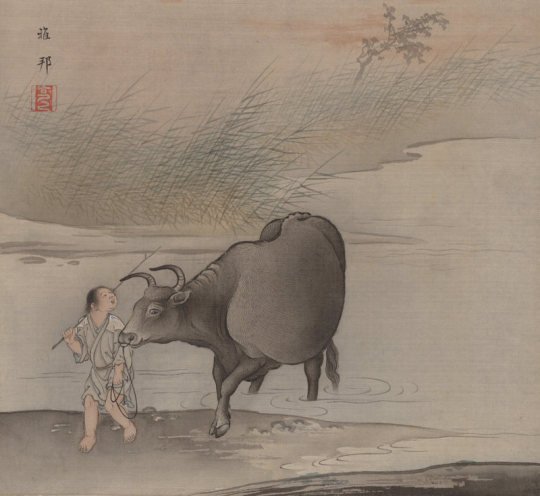
1780: Jeremy Bentham, lawyer and philosopher recognised in animal rights circles for arguing for better treatment of animals. "The question is not can they reason? Nor, can they talk? But can they suffer?" (Bentham, J. 1789. An Introduction to the Principles of Morals and Legislation. Chapter xvii.)
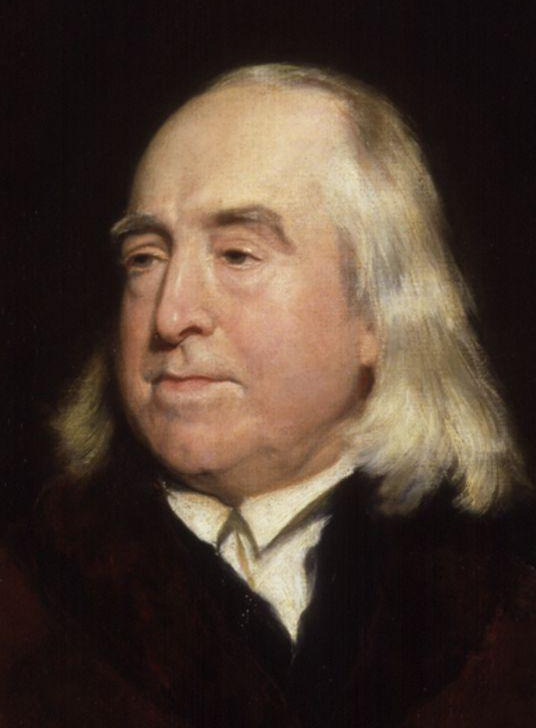
19th Century
1822: British Parliament put in place the “Act to Prevent the Cruel and Improper Treatment of Cattle.”
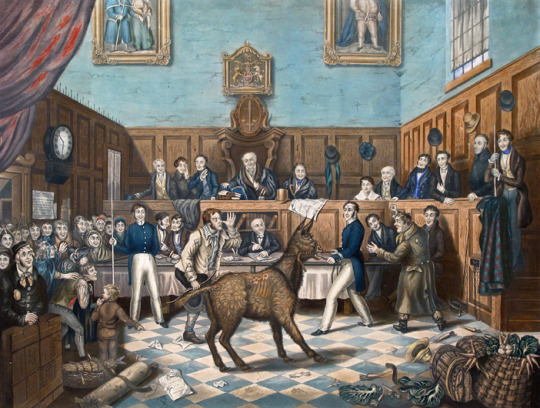
1824: The Royal Society for the Prevention of Cruelty to Animals is founded in England, (RSPCA) by Richard Martin, Arthur Broome, and William Wilberforce.

1835: The first Cruelty to Animal Acts (full title: An Act to Consolidate and Amend the Several Laws Relating to the Cruel and Improper Treatment of Animals, and the Mischiefs Arising from the Driving of Cattle) is passed in Britain.

1866: The American Society for the Prevention of Cruelty to Animals is founded by New Yorker Henry Bergh.

1875: The National Anti-Vivisection Society is established in Britain by Frances Power Cobbe.

1892: English social reformer, Henry Stephens Salt publishes "Animals' Rights: Considered in Relation to Social Progress."

20th Century
1944: English animal rights advocate Donald Watson founds the Vegan Society in Britain.

1975: “Animal Liberation,” by philosopher Peter Singer is published.

1979: Animal Legal Defense Fund is established, and National Anti-Vivisection Society establishes World Lab Animal Day, on April 24th. The day has evolved into World Laboratory Animal Week.

1980: People for the Ethical Treatment of Animals (PETA) is founded and “Animal Factories” by attorney Jim Mason and philosopher Peter Singer is published.

1981: Farm Animal Reform Movement is officially founded.

1983: Farm Animal Reform Movement establishes World Farm Animals Day on October 2nd and “The Case for Animal Rights,” by philosopher Tom Regan is published.

1985: The first annual Great American Meatout is organized by Farm Animal Reform Movement.

1986: Fur Free Friday, an annual nation-wide fur protest on the day after Thanksgiving, begins; and Farm Sanctuary is founded.

1987: California high school student Jennifer Graham makes national headlines when she refuses to dissect a frog and "Diet for a New America" by John Robbins is published.
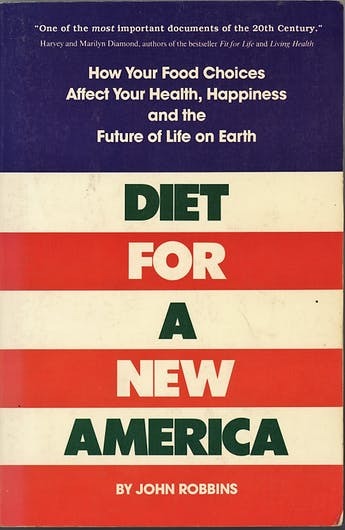
1989: Avon stops testing their products on animals, and In Defense of Animals launches their campaign against Proctor & Gamble’s animal testing.

1990: Revlon stops testing their products on animals.

1992: Animal Enterprise Protection Act is passed.

1993: General Motors stops using live animals in crash tests and The Great Ape Project is founded by Peter Singer and Paola Cavalieri.

1994: Tyke the elephant goes on a rampage, killing her trainer and escaping from the circus before being gunned down by police.

1995: Compassion Over Killing is founded by Erica Meier.

1996: Vegetarian activist and former cattle rancher Howard Lyman appears on Oprah Winfrey’s talk show, leading to a defamation lawsuit filed by Texas Cattlemen.

1997: PETA releases an undercover video showing animal abuse by Huntingdon Life Sciences.

1998: A jury finds in favor of Lyman and Winfrey in the defamation lawsuit filed by Texas Cattlemen, and an investigation by The Humane Society of the US reveals that Burlington Coat Factory is selling products made from dog and cat fur.

21st Century
2001: Compassion Over Killing conducts an open rescue at a battery hen facility, documenting abuses and rescuing eight hens.

2002: "Dominion" by Matthew Scully is published, and McDonald’s settles a class-action lawsuit over their non-vegetarian french fries.
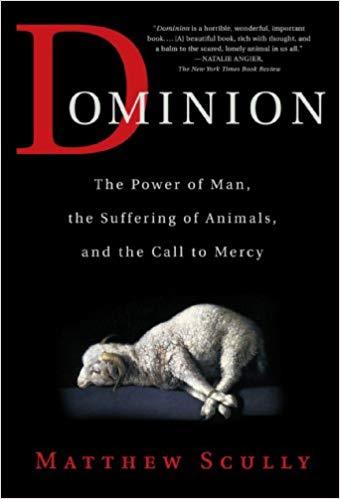
2004: Clothing chain Forever 21 promises to stop selling fur.

2005: The US Congress pulls funding for inspections of horse meat.

2006: The "SHAC 7" are convicted under the Animal Enterprise Protection Act; Animal Enterprise Terrorism Act is passed, and an investigation by the Humane Society of the US reveals that items labeled as “faux” fur at Burlington Coat Factory are made of real fur.

2007: Horse slaughter ends in the United States, but live horses continue to be exported for slaughter, Barbaro dies at the Preakness.

2009: The European Union bans cosmetics testing and bans the sale or import of seal products.

2010: A killer whale (Tilikum) at SeaWorld kills his trainer, Dawn Brancheau. SeaWorld is fined $70,000 by the Occupational Safety and Health Administration.

2011: National Institute of Health stops funding of new experiments on chimpanzees; President Obama and Congress legalize horse slaughter for human consumption in the US. As of spring of 2014, no horse slaughterhouses have opened.

2012: Iowa passes the nation's fourth ag-gag law; An international convention of neuroscientists declares that non-human animals have consciousness. The declaration's main author goes vegan. The Cambridge Declaration on Consciousness is published in Britain, which states that many nonhuman animals possess the neurological structures to generate consciousness.

2013: The documentary "Blackfish" reaches a mass audience, causing widespread public criticism of SeaWorld.

2014: India bans cosmetic testing on animals, the first Asian country to do so.

2015-2016: SeaWorld announces it will end its controversial orca shows and breeding program.

2017: The Appropriations Committee of the U.S. House of Representatives votes 27 to 25 in favor of re-opening the practice of horse slaughter.

0 notes